

Vietnam travel requirements 2024: What travelers need to know
We aim to keep this post updated about Vietnam travel in 2024 with official Vietnam travel restrictions, requirements, and health and safety guidance. Our goal is to help you make informed decisions so you can travel confidently, safely, and responsibly in this new post-pandemic world of ours.
Vietnam is a destination close to our hearts. We returned to visit Vietnam in 2023 and 2024.
As restrictions can vary based on the traveler’s citizenship, we will focus primarily on rules affecting U.S. citizens.
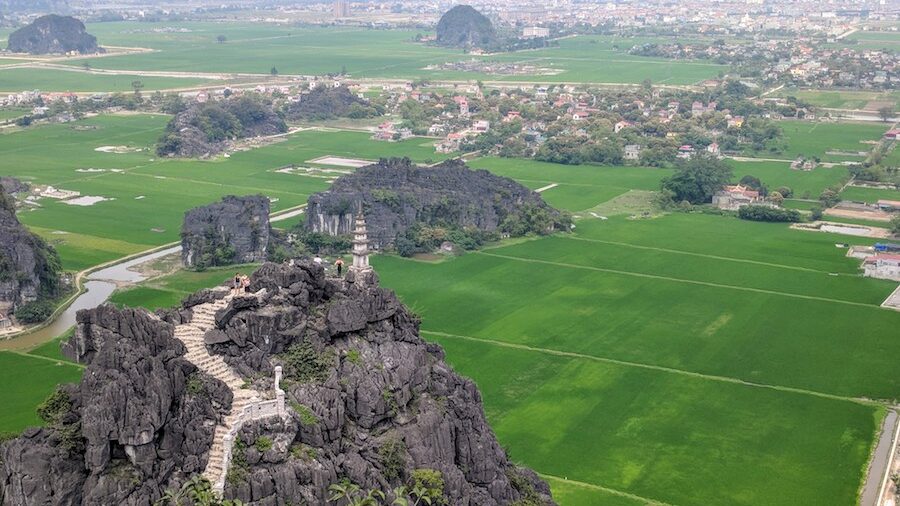
* Get our free Post-Pandemic Travel Checklist *
April 2024 – “During our 3-month stay in Central Vietnam, we took a short trip out of the country. We brought our printed e-visa , which was examined by the agent that checked us into our flight from Hong Kong back to Vietnam and again at immigration in Da Nang. Proof of onward travel was not requested this time. The Hanoi airport international check in was as crowded as ever in April. Budget airlines like VietJet use buses instead of jetways for boarding and deplaning, so it’s impossible to avoid close contact with crowds. I’d say less than 1/4 of travelers are still wearing masks. Masks are more commonly worn outside on motorbikes in Vietnam.”
January 2024 – “We flew back to Hanoi, this time with a 3-month evisa we applied for online well in advance. Besides valid passports, we were asked for proof of onward travel from Vietnam while checking into our flight in the US. We were asked to name our travel insurance provider on the visa application and brought documentation of the policy from Safety Wing , however, we weren’t asked to show it at any point. We were not asked any questions at immigration, only provided our passport and black/white print out of the visa.”
At the end of the post, we share more on-the-ground perspectives from local residents and travelers to Vietnam so you can get a true sense of what things are like.
Table of Contents
Is Vietnam open for travel? Can I travel to Vietnam right now?
Vietnam is now open to foreign travelers. Vietnam officially reopened its borders to all international visitors on March 2022, after two years of being closed.
Travelers can apply for an e-visa online. See our Vietnam evisa tips here.
Foreign travelers are not required to take a pre-departure Covid-19 test or show proof of vaccination prior to arrival. The health declaration form requirement has been removed.
Travel insurance that covers Covid-19 treatment with a minimum coverage of $10,000 has been required. There is a declaration that you’ll have insurance on the evisa application. It’s unclear if this is still being enforced anywhere. (We use Safety Wing for travel insurance in Vietnam.)
What Vietnam tourist visas are available right now?
E -visas are available to Americans, Canadians, and all other nationalities.
Effective August 2023, e-visa validity has been extended to 90 days. You can choose between single entry or multiple entries.
Travelers can apply for an e-visa at the e-visa web portal of the Vietnam Immigration Department.
Be sure to review our Vietnam evisa tips here , as there are some quirks and important things to know to avoid having to reapply.
In our experience, processing the evisa can take at least 3 days. We also had to redo one application because one of our credit cards wouldn’t allow the online charge. It’s best to apply for Vietnam e-visas several weeks in advance, just in case.
What about Vietnam Visas On Arrival?
We’re not clear on the availability of Visas On Arrival – technically it’s a Landing Approval Letter, which we used before the pandemic. We saw no desk for VOAs in the immigration hall at Ho Chi Minh City airport when we arrived at the end of 2022. In early 2024, there was a “Visa Application” desk in Hanoi, but it didn’t seem to be active.
In cases where you’re ineligible or have trouble with the e-visa process, you may be able to apply for a Landing Approval Letter through an agent in Vietnam, print out the letter, and proceed to the visa counter at the airport to receive your actual visa sticker, which is another $25 USD.
Can Vietnam e-Visas be extended?
E-visas cannot be extended , meaning visitors have to leave or do a border run and reapply. There is no official limit that we can find as to how many times tourists will be approved for e-visas back to back.
Vietnamese embassies and consulates are telling callers that nothing can be done about visas there, as all applications are currently online.
Quarantine rules in Vietnam: What happens if I get Covid?
Travelers entering Vietnam are not required to quarantine upon arrival.
Foreign tourists experiencing COVID-19 symptoms or those concerned they have been exposed to COVID-19 while in Vietnam can call Vietnam’s health hotline at 19009095 (Press 1 for English).
Foreign tourists who test positive for Covid while in Vietnam may need to isolate for treatment. Thankfully, isolation no longer needs to take place in government facilities.
Medical treatment should be covered by the visitor’s travel insurance. Some of our acquaintances tried getting Paxlovid via a local doctor while in Vietnam but were not successful.
How has the Coronavirus impacted Vietnam?
Apart from suspending foreign travel, the impact of Covid in Vietnam was relatively minimal in the first year. The country’s quick reaction became one of the most effective in the world at first. Lock downs were for a few short weeks and then daily life resumed as usual for several months until new cases popped up.
Vietnam had 99 days without any cases of community transmission and no deaths in Spring 2020. However, in late summer 2021, the infection rate in Vietnam skyrocketed as the Delta variant spread and vaccination rates were low. In December 2021, Vietnam detected the first case of the Omicron variant in Hanoi.
Strict lock down zones were implemented throughout 2021. Vietnam’s tourism and manufacturing sectors have been especially hit hard.
In March 2021, vaccinations began but very slowly. Now, over three quarters of the population are fully vaccinated.
In January 2022, Vietnam reopened international flights from select locations. A limited number of tourists were accepted through package tours and a trial vaccine passport program until full reopening in late Spring 2022.
International tourism recovery was slow in 2022, though domestic tourism was strengthened. Vietnam’s tourism in 2023 was still lower than pre-pandemic levels.
For the current situation in Vietnam, including: total COVID-19 positive cases; total cases in Vietnam; and COVID-19 testing in Vietnam, please see the Vietnam Ministry of Health site .
Can I travel to Vietnam this Fall 2024?
Travel to Vietnam this Fall is open . Read on for details and check back for updates.
What is it like to fly to Vietnam HAN Hanoi, DAD Da Nang, or SGN Ho Chi Minh City International Airport right now?
Vietnam airports seemed very busy to us, and crowds are difficult to avoid. Hanoi and Ho Chi Minh City airports can get exceptionally crowded. Masks are no longer required.
Do I have to quarantine when traveling to Vietnam? No. See details above.
Does Vietnam check COVID-19 symptoms of incoming travelers? No.
Does Vietnam require a proof of negative Covid 19 test result for travelers? No. As of April 2022, a negative test is no longer required for entry into Vietnam.
Does Vietnam require a proof of Coronavirus vaccine for travelers? No. Proof of vaccination is currently not required to enter Vietnam.
Do I still need to provide a negative Covid test or quarantine if I have been vaccinated? At this time, there is no special allowance for vaccinated travelers in Vietnam. However, a Covid test and quarantine is no longer required to enter Vietnam.
Is a booster shot required for travel to Vietnam? At this time, booster shots are not required in Vietnam. There is currently no expiration period set for the validity of vaccinations.
What healthcare options are available to travelers in Vietnam who get the virus? Hospitals and clinics are open in Vietnam. Foreigners must pay for any medical treatment out of pocket.
Government quarantine locations may only have rudimentary facilities.
Persons experiencing symptoms of the COVID-19 virus should call the health hotline at 19009095 (Press 1 for English). Availability of treatments may differ from your home country.
If a foreign visitor is required to be tested for Coronavirus, they can get tested at designated laboratories in Vietnam. The test may be free if they test negative. If the test is positive, the visitor will be required to pay for it.
For travel insurance that covers Covid, check out Nomad Insurance by Safety Wing >
What service businesses and restaurants are open in Vietnam? Businesses and activities have fully reopened. Select cities and provinces have imposed temporary lock downs or closed certain non-essential businesses when outbreaks of the virus are detected in the area.
Are face masks required in Vietnam? Vietnam has relaxed mask rules in pubic places. You’ll still see many people wearing face masks, especially while driving, as this was common practice even before the pandemic.
Are buses and trains running in Vietnam? Domestic airline and railway transportation are running on normal schedules. More daily flights within Vietnam are now available. Public and passenger transportation has resumed.
Will Vietnam impose new Covid restrictions? What’s next is difficult to predict. Vietnam no longer follows a “zero Covid” policy so shut downs are less likely than they were before vaccines were available. Historically, most countries impose COVID-19 restrictions when strains on the health care system become unsustainable.
What should you pack for safely traveling in Vietnam?
😷 Face Masks – Face coverings are required in some public places and commonly used throughout Vietnam. Find N95 masks at Bona Fide > or designer options at Vida >
🧴 Hand sanitizer Shop hand sanitizer >
💊 Medicine – Bring enough prescription and over-the-counter medication for your entire trip to avoid trips to the clinic.
💳 Vaccine Card Holder – Protect that paper CDC card when traveling abroad (if your country doesn’t offer a digital version). Get a simple plastic protector > or Vegan leather clippable > or Leather passport + card combo holder >
👃 Covid self-test – The most studied rapid antigen self-test with FDA emergency authorization. NOT valid to enter countries. Use for your own peace of mind. Order from CVS > or Walmart >
💧 Sealed water bottle – Make sure your reusable water bottle has a lid that’s not exposed to the air. We use one of each of the following: Shop insulated water bottles with protective lid > Shop water bottles with purification filter and protective lid >
✈️ Travel insurance that covers Covid – We’ve started using Nomad Insurance by Safety Wing for affordable evacuation, international medical, and trip coverage.
TIP: Traveling abroad is much easier when our smartphone stays connected.
If you have our WorldWide Connectivity course (also available inside our Membership ), review the modules on eSIM Best Practices and Managing Data Usage to get the most out of your eSIM!
What do Vietnamese locals and recent travelers say about visiting Vietnam now?
What is it like to visit Vietnam right now? It’s our goal to provide regular updates here from real people on the ground, to help potential visitors know what to expect. The following are subjective opinions only. Official travel guidance can be found above.
October 2023 – Peta and Jonas of Exit45 Travels , Australian travelers: “We are travelling around the north of Vietnam for 1 month from mid-September to mid-October 2023. We are nearing the end of the wet season here in the north of Vietnam which is traditionally low season. There are some tourists travelling around but in general, it is fairly quiet.
There are no travel restrictions in place here in Vietnam and there is no shortage of restaurant, accommodation and medical care facilities available. As the seasons are changing here at the moment, many locals and travellers are sick with head colds. This has been most obvious in restaurants where the cooks and waiters have been coughing and sneezing freely without covering their mouths or wearing face masks. It feels as though covid never really happened, and no lessons have been learnt about general hygiene. This may have been the case pre-covid too, and maybe we just didn’t notice then, but we have certainly had a heightened awareness of it this time.
The new e-Visa application process can be quite a challenge and whilst they say to allow 3 to 5 business days for approval, we would highly recommend applying approximately 1 month before you plan on arriving in Vietnam. If you then have any problems with the application, you will have time to reapply.
The biggest problem people are encountering is once approved, the information on your approval is incorrect i.e. middle name is missing, D.O.B. has the day / month in the wrong format, incorrect entry port etc.”
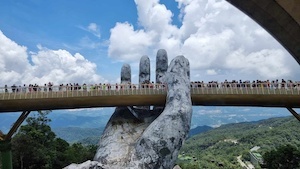
September 2023 – Ros & Alan Cuthbertson of StepIntoVietnam , Australian Digital Nomads: “We visited Vietnam frequently prior to Covid and have returned three times since the country reopened post Covid.
Everything is back to normal, masks are not required but you will find many locals still wearing them. Very few tourists can be seen wearing masks. There is no Covid or health testing required for travel within the country.
Tourists are beginning to flock to Vietnam and are rediscovering the wonders of this fascinating country. Popular destinations such as Hanoi, Ha Long Bay and Hoi An and Ho Chi Minh City are busy with tourists and prebooking travel and tours is advised. For example we tried to book a two berth train cabin from Hanoi to Hue but they had been booked out months in advance and we had to get a four berth cabin instead.”
March 2023 – Michelle, Intentional Travelers, U.S. nomad: “We thoroughly enjoyed returning to visit Vietnam and would have stayed longer if we could. Our Vietnamese friends tell us that Covid is no longer a major concern in Vietnam. Tourists have few restrictions to worry about.
There are still fewer tourists than pre-pandemic times, so I think now is a great time to visit. It still gets crowded in Hoi An Ancient Town at night, and the Hanoi airport departures area seemed exceptionally crowded.”
February 28, 2023 – Michelle, Intentional Travelers, U.S. nomad: “We arrived back in Vietnam, flying from Thailand to DAD, for our second stay on the 30-day tourist visa. The evisa application took 3-4 days this time and we made sure to print it out. Air Asia checked the evisa at check in, as did the agent at immigration when we arrived.
Filling out an immigration form when arriving in Vietnam is no longer required unless you have something to declare (bring in significant money or goods into the country). Wait time for immigration was no longer than the wait for our bags to show up at luggage claim, and customs just asked us to scan our two carry on bags.
As our flight came in, AirAsia announced that there was a mask requirement for arriving in Vietnam. However, we did not see masks enforced and even a few of the airport employees weren’t wearing masks.”
January 27, 2023 – Michelle, Intentional Travelers, U.S. nomad: “Unlike our flight into Vietnam, masks were not required on our outgoing flight but a majority of passengers and all the crew were wearing face coverings. Da Nang airport is spacious and only crowded at certain times when many flights are scheduled.”
January 2, 2023 – Michelle, Intentional Travelers, U.S. nomad: “The Ho Chi Minh City airport was very busy and had quite a few delayed domestic flights early in the year. More than half of passengers were wearing masks though they’re not required.”
December 2022 – Michelle, Intentional Travelers, U.S. nomad: “We flew to Ho Chi Minh City, Vietnam from the US via Singapore. We applied for the 30-day evisa about one week before traveling. There was an issue with Chase not allowing the credit card charge online, so we had to redo one of our applications. It was processed in 2-3 days and I printed the one-page documents for our trip. We also printed our Safety Wing travel insurance coverage letter but didn’t end up needing to show it.
Upon check-in with Singapore Airlines in Seattle, we were only asked for our passports and visa paperwork. Arriving in Vietnam, there was a 40+ minute wait for immigration. We had to show our passport, boarding pass, and evisa printout. We were never asked for onward flight booking or Covid documents.
Masks were required on our flight into Vietnam. Many locals wore masks before the pandemic (partly due to air pollution), so mask-wearing out in public is still very common but by no means universal in Vietnam.”
July 1 2022 – M.T. Expat in Ho Chi Minh City: “Covid is very much an afterthought for most people now – official national case numbers have been under 1,000 per day for a while (with basically no testing going on), and mask use is far from universal anymore. I’ve even seen people in airports and on planes without a mask… But health officials are starting to sound some (mild) alarm bells [regarding the Omicron BA.5 variant]. Given how normal daily life has become (and the incredible surge in domestic travel, which is seeing holiday-level airport traffic daily), conditions are ripe for Covid to spread rapidly.”
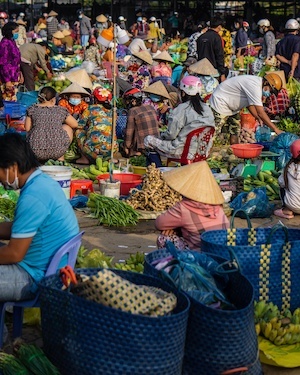
May 2022 – Karla of Colorful Journeys , expat in Vietnam: “Every day, an increasing number of tourists travel within Vietnam. Many local tour operators have reopened for business and are now easily bookable. Transportation options are widely available and simple to book.
Despite the fact that there are no longer any travel restrictions in Vietnam, the majority of people still wear masks. This is particularly true in larger cities such as Ho Chi Minh City and Hanoi. There is also a lot of local testing accessible in major cities. Because many hotels and attractions are permanently closed, it’s a good practice to call the business beforehand.”
March 25, 2022 – Phu, Vietnamese tour guide: “Vietnam now is reopening for tourists but the tourists come to Vietnam very little at the moment. Not so many, still quiet here. In Hoi An all the shops and restaurants are open, and more domestic tourists come to Hoi An. The local people we are really happy welcome the tourists. And me I open my motorbike tours again, but in 1 month I have only one tour booking. I will be offering a discount price to welcome tourists booking this is the year.”
We highly recommend a motorbike day tour or overnight tour with our friend, Phu! Contact him at Hoianmotorbiketouradventures@ gmail.com .
January 2022 – Isabelle of Move to Vietnam , Vietnamese resident: “At the moment, domestic travel is possible as long as you are fully vaccinated. Tourists are only allowed in Vietnam under specific requirements. Unless you want to spend $1500 and up for 7-14 days of holiday, it’s better to wait for a few more months.
June 2022 is the government’s target to reopen. However, these policies change very often.
Vietnam has a pretty good system when it comes to contact tracing. Most places of business require everyone to check-in using a QR code or sign up sheet. If that place detects a positive case, people who were there at the same time will be contacted to be tested and self-isolated for a number of days. There’s very little anti-vaccination sentiment here.
Tourists attractions are normally open. If you need to be hospitalised, you will have an option to go to a private hospital or a more affordable local hospital (you might have to bring a local or a translator).”
December 2021 – Huong Nguyen (Hanna), Vietnamese nomad CoXplore : “After the lifting of strict COVID-19 restrictions, the government is still strict with the 5K rule: ‘Khau trang’ (facemask), ‘Khu khuan’ (disinfection), ‘Khoang cach’ (distance), ‘Khong tu tap’ (no gathering), and ‘Khai bao y te’ (health declaration) to help citizens get used to living safely with the COVID-19 pandemic in ‘new normal’ state; and citizens are generally active to follow.
Recovering from COVID-19, Vietnam is now encouraging domestic travelling within the country, and is prepared to welcome international visitors who have met all the vaccination requirements. Residents must receive at least a dose of COVID-19 vaccine and obtain a QR code through mandated health apps for movement within the city.”
September 2021 – Phu, Central Vietnam Resident: “Vietnam now is lock down. Covid delta so fast in Vietnam now. Kill 14000 people already. My area we are staying home, still safe at the moment.”
January 2021 – Jackie & Justin, Life Of Doing , Expats in Ho Chi Minh City: “Vietnam does not currently allow tourists to enter the country. Tourist cities rely on locals and long term residents visiting. Currently, there aren’t any restrictions for traveling within the country for locals and long term residents. Everyone traveling must wear masks at public places and may have a temperature check before entering a building or vehicle. Many of the tourist cities have been impacted by fewer tourists and have closed restaurants and tourist attractions. Luckily, Vietnam’s government is proactive when it comes to finding the source of confirmed cases that have tested positive for the virus and trace the contacts of confirmed cases immediately.”
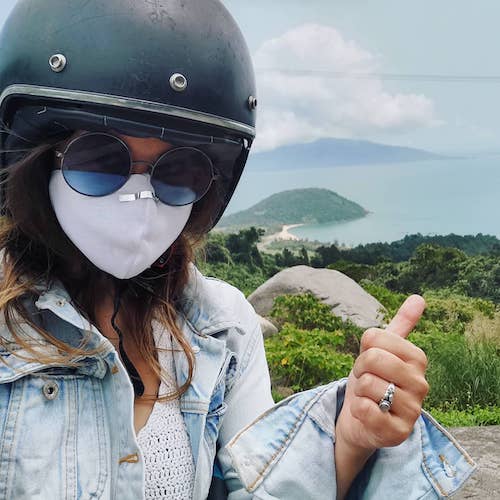
Adela, Spanish/Digital Nomad. July 2020 ~ “The only tourists in Vietnam at the moment are either those who were already in the country or Vietnamese nationals doing internal tourism. At the moment, the relationship of the locals with foreigners is back to normal, however during the months of March and April there was a sudden “fear” of foreigners, especially Westerners, and in some places (restaurants, hotels, bars, etc) we were denied entrance. Although at the moment everyone is as friendly and welcoming as it can be, the kids that live in our street still laugh and cover their faces when they see us. Many businesses have chosen to close due to the lack of tourists, but most touristic attractions are open and …less crowded than they will ever be!”
Tasha , American Digital Nomad. July 2020 ~ “Despite having a third the population of the U.S. and sharing a border with China, thanks to common sense, early action, and preventative measures, Vietnam has vanquished coronavirus. Cases peaked at less than 400, and now the virus is completely contained — there is no community spread. Borders remain closed to keep the virus out. Vietnam has done an excellent job with testing and contact tracing. The virus is completely gone from the general population, so we are living life as normal, going to restaurants and cafes.”
Even if you can’t go to Vietnam right now, you can still get started planning your Vietnam trip for the future.
Check out our other Vietnam travel resources: – Suggested Vietnam Itineraries: 10+ Days in Vietnam – A budget guide to Hoi An Vietnam – A budget guide to Ninh Binh – A budget guide to Hue – A budget guide to Hanoi – A budget guide to Mai Chau Vietnam – Central Vietnam Destinations and Itinerary
* Get our free Vietnam Travel Destinations e-guide *
If you have questions or updates about travel to Vietnam during the Coronavirus crisis or post-pandemic, please let us know in the comments below.
~ Pin this post for later or share with friends ~
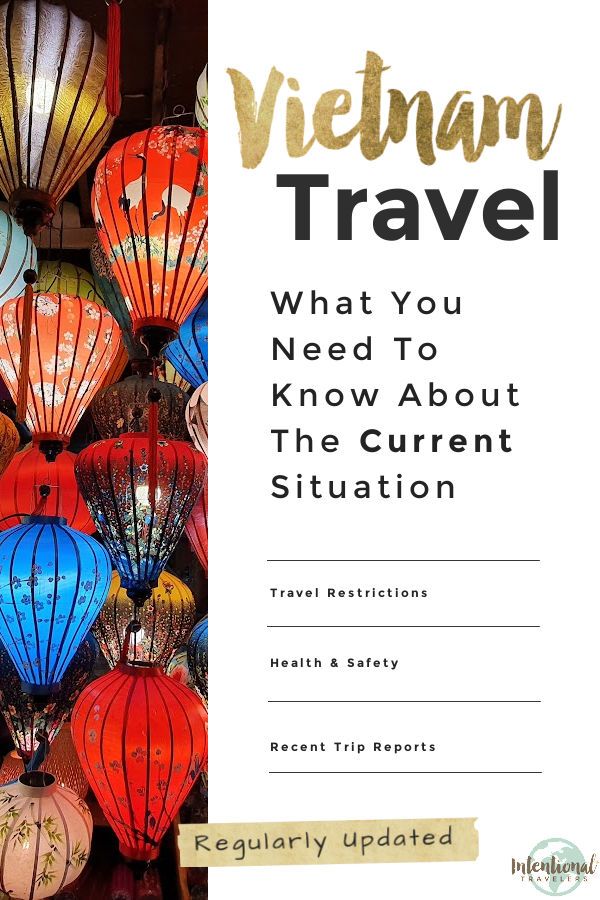
Disclaimer: Please note, travel restrictions change frequently. Readers must take responsibility for verifying information through official sources like the State Department and CDC, in respect to their specific situations. No responsibility can be accepted by Intentional Travelers for action or inaction as a result of information provided through IntentionalTravelers.com. Any information provided here is issued as general information only.
Similar Posts
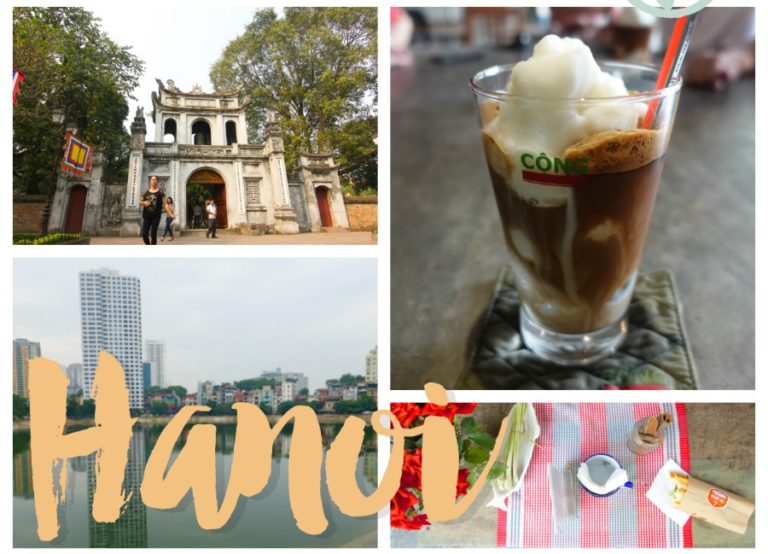
Things to Do in Hanoi, Vietnam on a Budget
Vietnam’s capital, Hanoi, is a bustling city in the North with a lot to explore. Cost of living is fairly cheap so there are many things to do in Hanoi on a budget. Despite not loving big cities and traffic, we have really enjoyed our many visits to Hanoi. Initially we stayed with expat friends…
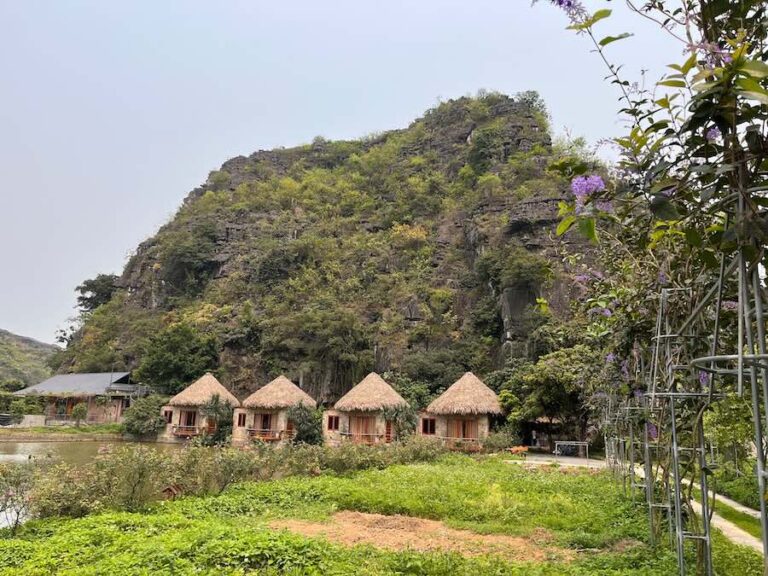
Where to stay in Ninh Binh Vietnam
In this post, we’ll share our recommendations on the best areas to stay in Ninh Binh, explain the types of accommodations, and show you the best homestays and hotels so you can find the perfect place to stay in Ninh Binh Vietnam for your own trip. Finding the Best Places to Stay in Ninh Binh…
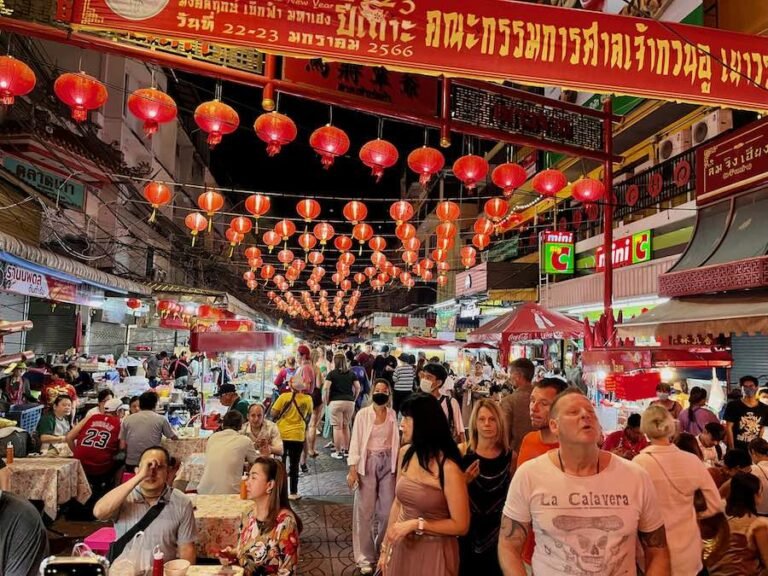
Is the Bangkok GoCity Pass worth it? Review & Best Uses
Will you be visiting Bangkok, Thailand? Bangkok is a huge city with a lot to offer, and it can be a little overwhelming even for seasoned travelers. The Bangkok GoCity Pass can be a great option to help you see the best of Bangkok with ease. We had the option to try it out for…
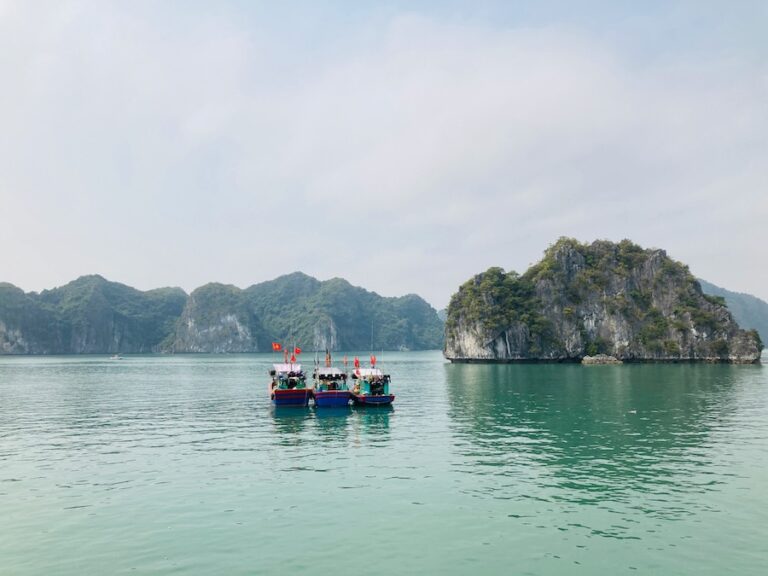
Cat Ba Island – Lan Ha – HaLong Bay Cruise Review + Tips
What is the best value for your money and time on a HaLong Bay cruise? These are our tips and full HaLong Bay cruise review to help you make the best choice. In this post, we share what we learned from our experience on Venezia Cruises 3-day 2-night Lan Ha Bay itinerary and from extensive research…
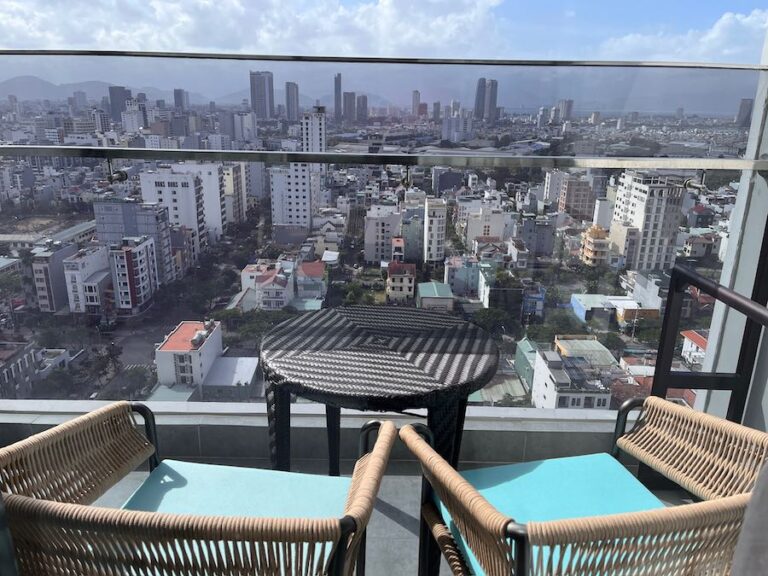
Unique Things to do in Da Nang Vietnam
If you’re looking to explore Da Nang, Vietnam off the beaten path with unique experiences beyond the typical tourist spots, these are our personal recommendations for your visit. To be clear: this is NOT a generic, exhaustive list of all the best things to do in Da Nang. This is a curated, subjective list based…
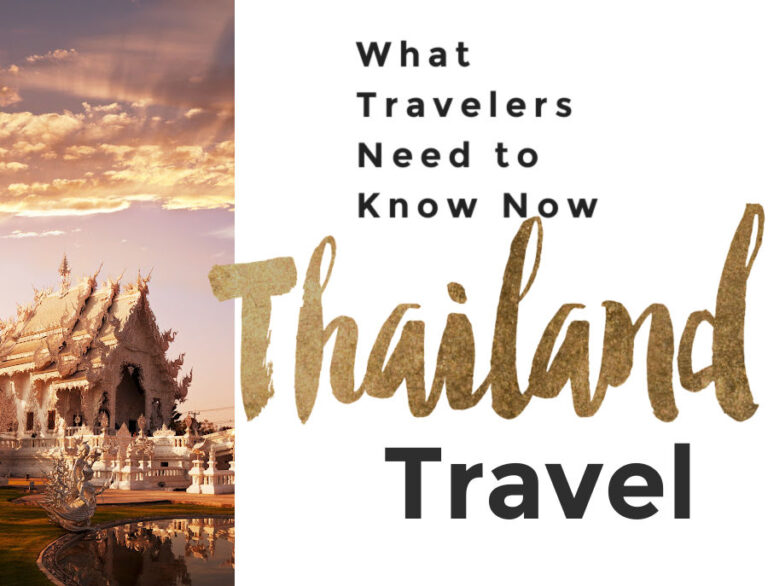
Thailand travel requirements 2024: What travelers need to know
We aim to keep this post updated about Thailand travel in 2024 with official Thailand travel restrictions, requirements, and health and safety guidance. Our goal is to help you make informed decisions so you can travel confidently, safely, and responsibly in this new post-pandemic world of ours. Since travel restrictions can vary by citizenship, we…
Hello: I’m wondering if someone could let me know where the cheapest COVID insurance is to be found (FOR VIETNAM.) Many thanks. I’m in Cambodia and wanting to travel there soon. It’s Dec. 1, 2022. I’m vaccinated and boosted, healthy, etc. Many thanks.
Hi Randy. We’re not experts in insurance, but we plan to use Safetywing, as mentioned in this post – it’s easy to apply for even when you’re already abroad, but the costs depends on your age and it includes additional benefits that Vietnam doesn’t require. There are online insurance quote comparison tools you could try, but I’m not aware of an insurance package specific to Vietnam travel.
I would like to know about Phase 2 travel in Vietnam in January 2022. Is Phase 1 and Phase 2 doing the same requirement such as taking Covid test within 72 hours as well as quarantine 7 days in the government facility during January 2022?
Hi Andy. Thanks for visiting our blog. There is very little information about the requirements for future phases so far, probably because everything is still in constant flux in Vietnam. We’ll do our best to update this post with details as they become available. It’s always possible the reopening dates could change and additional information may be released at the last minute.
Leave a Reply Cancel reply
Your email address will not be published. Required fields are marked *
This site uses Akismet to reduce spam. Learn how your comment data is processed .
Your Vietnam
Detailed entry requirements for international visitors to vietnam.

The Ministry of Culture, Sports and Tourism has issued Document No. 829/PA-BVHTTDL on its plan to reopen the tourism sector in the new normal.

Regulations on the reception of international visitors to Vietnam under the document are now much easier than previous proposals submitted by relevant agencies. * To enter Vietnam, international visitors need to meet the following conditions: - To be a citizen from the 13 following states who will be entitled to 15-day visa exemption regardless of passport types and entry purposes, provided they meet all the conditions stipulated by Vietnamese law: Germany, France, Italy, Spain, the UK, Russia, Japan, the Republic of Korea, Denmark, Sweden, Norway, Finland, and Belarus. This rule is valid from March 15, 2022 through March 14, 2025. - To be foreign nationals, overseas Vietnamese, or relatives who hold sufficient legal papers as regulated (including valid permanent residence cards, temporary residence cards, visas, visa waivers). They do not need to re-apply for personal verification or visa issuance/visa waivers, or apply for entry permission by ministries, sectors, or localities. * Testing and vaccination requirements: - International visitors to Vietnam (except for children under 2) need to test negative for SARS-CoV-2 prior to their departure by air within 72 hours if using the RT/PCR/RT-LAMP test method, or within 24 hours if using the rapid antigen test method as verified by competent authorities of the countries conducting the tests. - Those who enter Vietnam by road, railway, or sea can take a test before their departure like air passengers if their travel duration is short. Meanwhile, they need to take a test at ports of entry if their travel duration is long. - A test is required if an international visitor shows COVID-19 symptoms. If the test result is positive, he/she must comply with the Ministry of Health’s guidance. - The rule that international arrivals by air have to undergo another test when entering Vietnam, as well as quarantine requirements, is no longer in place. International visitors can engage in tourism activities as soon as they meet these conditions.

* Entry procedures: - All international arrivals have to make health declarations at tokhaiyte.vn prior to leaving. - Installing the PC-COVID application. * Quarantine requirements: Within 10 days since their entry, international visitors have to self-monitor their health. In case of showing suspected symptoms (fever; cough; sore throat; runny nose, nasal congestion; aches or pains, tiredness, cold; loss of taste or smell; headache; diarrhea; shortage of breath; respiratory infection), they have to immediately report to their nearest healthcare establishment to receive timely guidance and management while practicing disease prevention measures (frequently wearing face masks, cleaning hands with sanitiser). * Other information: - International visitors must have health insurance or travel insurance with coverage of at least US$10,000 for COVID-19 treatment. - International visitors must pay testing, health quarantine, check-up, and treatment expenses, and others (if any) by themselves. - If wishing to apply for or having problems with seeking the Vietnam entry permit, foreign nationals and Vietnamese holding foreign passports can liaise via the following contacts: + Email: [email protected] + Email: [email protected] for guiding and handling foreigners’ entry, exist, and residence procedures. + Telephone numbers: (+84) 24 38 26 01 14/ 24 38 26 40 26 (Hanoi)/ (+84) 28 39 20 03 65 (Ho Chi Minh City). + For more information about entry permit application procedures, visit the website: https://xuatnhapcanh.gov.vn ./.

Foreigners, overseas Vietnamese to benefit from favourable entry procedures
Permanent Deputy Prime Minister Pham Binh Minh has given in-principle approval that favourable entry procedures will be created for foreigners, and overseas Vietnamese and their relatives.
Báo điện tử VOV
- Destinations
Vietnam Travel Insurance Requirements
Last updated: 03/07/2024
Effective May 15, 2022, Vietnam lifted all Covid-19 travel requirements, including mandatory travel insurance. With that said, these entry rules are subject to change at any time, and all travelers heading to Vietnam should confirm the latest entry requirements prior to departing for their trip.
Squaremouth’s Vietnam Travel Insurance Recommendations
In addition to a policy with Emergency Medical coverage with at least $50,000 in coverage, Squaremouth recommends a policy with at least $100,000 in Medical Evacuation coverage. Travelers who are visiting more remote areas of Vietnam should consider a policy with at least $100,000 of Emergency Medical and $250,000 in Medical Evacuation coverage, due to the potential for increased medical costs.
Emergency Medical coverage can offer reimbursement for treatment due to an unforeseen illness or injury, and typically includes treatment for contracting Covid-19. The Medical Evacuation benefit can provide reimbursement for costs associated with transportation costs associated with a traveler getting to the nearest adequate medical facility.
For travelers with prepaid and non-refundable trip costs, Squaremouth recommends the Trip Cancellation benefit, which can reimburse up to 100% of covered trip costs if a traveler has to cancel their trip before they’ve left. Typical reasons include an unforeseen illness or injury, death, inclement weather, or terrorism. Canceling from testing positive for Covid-19 is typically covered, as well.
Policies with Trip Cancellation coverage typically includes Trip Interruption. This benefit can cover a traveler’s unused, prepaid, non-refundable trip expenses if a person’s trip gets interrupted for a covered reason such as illness or injury, flight delays, or a natural disaster. If a traveler needs to cut their trip short, this benefit can also cover additional transportation expenses incurred to return home.
Vietnam Travel Insurance Trends and Data
Vietnam boasts delicious food, gorgeous hikes, and the world’s largest cave. Travelers also love to experience the limestone towers at Halong Bay.
Destination Rank: 19
Percentage of Squaremouth Sales: 1.25%
Average Premium: $274.94
Average Trip Cost: $3,703.00
Squaremouth Analytics compares thousands of travel insurance policies purchased pre- and post-pandemic to identify changes and trends in the travel insurance industry.
Helpful Resources
- Vietnam State Department Information
- Vietnam Travel Information
Available Topic Experts for Media:
Squaremouth's destination information is free and available for use within your reporting. Please credit Squaremouth.com for any information used.
Squaremouth's topic experts are on hand to answer your questions. Contact a member of our team for media inquiries about Squaremouth Analytics or to schedule an interview.
Steven Benna, Lead Data Analyst: [email protected]
We're here to help!
Have questions about travel insurance coverage? Call us! 1-800-240-0369 Our Customer Service Team is available everyday from 8AM to 10PM ET.
Việt Nam News
Detailed entry requirements for international visitors to việt nam.
HÀ NỘI — The Ministry of Culture, Sports and Tourism has issued Document No. 829/PA-BVHTTDL on its plan to reopen the tourism sector in the new normal.
Regulations on the reception of international visitors to Việt Nam under the document are now much easier than previous proposals. To enter Việt Nam, international visitors need to meet the following conditions:
- To be a citizen from one of the 13 following states who are entitled to a 15-day visa exemption regardless of passport types and entry purposes, provided they meet all the conditions stipulated by Vietnamese law: Germany, France, Italy, Spain, the UK, Russia, Japan, the Republic of Korea, Denmark, Sweden, Norway, Finland, and Belarus. This rule is valid from March 15, 2022, to March 14, 2025.
- To be foreign nationals, overseas Vietnamese, or relatives who hold sufficient legal papers as regulated (including valid permanent residence cards, temporary residence cards, visas, visa waivers): They do not need to re-apply for personal verification or visa issuance/visa waivers or apply for entry permission by ministries, sectors, or localities.
Testing and vaccination requirements:
- International visitors to Việt Nam (except for children under 2) need to test negative for SARS-CoV-2 prior to their departure by air within 72 hours if using the RT/PCR/RT-LAMP test method or within 24 hours if using the rapid antigen test method as verified by competent authorities of the countries conducting the tests.
- Those who enter Việt Nam by road, railway, or sea can take a test before their departure like air passengers if their travel duration is short. They need to take a test at ports of entry if their travel duration is longer.
- A test is required if an international visitor shows COVID-19 symptoms. If the test result is positive, they must comply with the Ministry of Health’s guidance.
The rule that international arrivals by air have to undergo another test when entering Việt Nam and quarantine requirements are no longer in place. International visitors can engage in tourism activities as soon as they meet these conditions. Entry procedures:
- All international arrivals have to make health declarations at the Tokhaiyte website prior to leaving.
- They must install the PC-COVID application (available on both iOS and Android)
Quarantine requirements:
Within 10 days of their entry, international visitors have to self-monitor their health. If showing suspected symptoms (fever; cough; sore throat; runny nose, nasal congestion; aches or pains, tiredness, cold; loss of taste or smell; headache; diarrhoea; shortage of breath; respiratory infection), they have to immediately report to their nearest healthcare establishment to receive guidance and management while practising disease prevention measures (wearing face masks, cleaning hands with sanitiser, etc.).
Other information:
- International visitors must have health insurance or travel insurance with coverage of at least US$10,000 for COVID-19 treatment.
- International visitors must pay for testing, health quarantine, check-up, treatment expenses, and other costs (if any) themselves.
- If wishing to apply for or having problems with seeking an entry permit, foreign nationals and Vietnamese holding foreign passports can liaise via the following contacts:
Email: [email protected]
Email: [email protected] for guiding and handling foreigners’ entry, exit, and residence procedures.
Telephone numbers: (+84) 2438 26 0114/ 24 38 26 40 26 (Hà Nội) or (+84) 2839 20 0365 (HCM City).
For more information about entry permit application procedures, visit the website xuatnhapcanh.gov.vn. — VNS
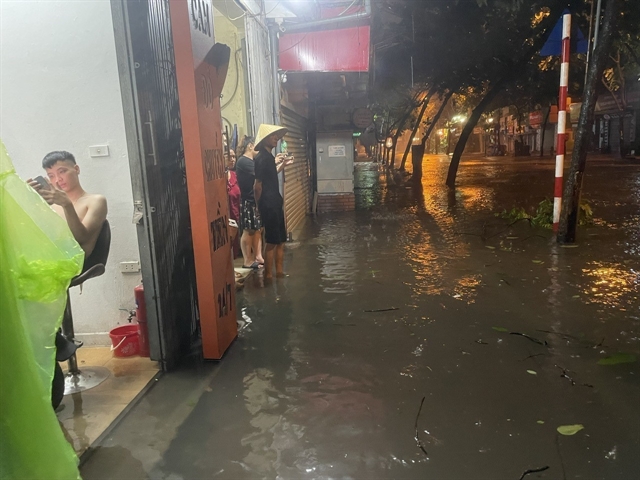
Typhoon Yagi devastates Hà Nội
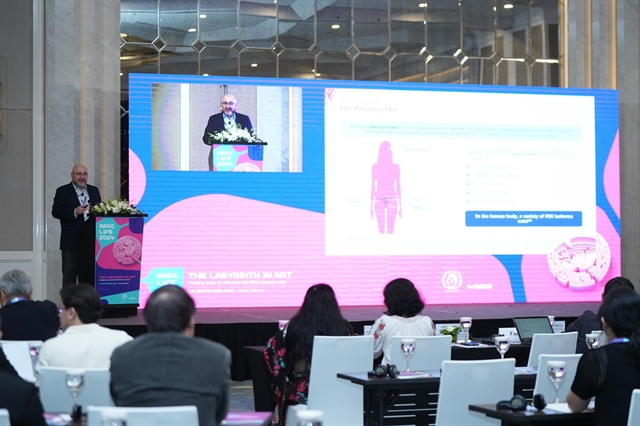
International symposium enhances success rate in assisted reproduction
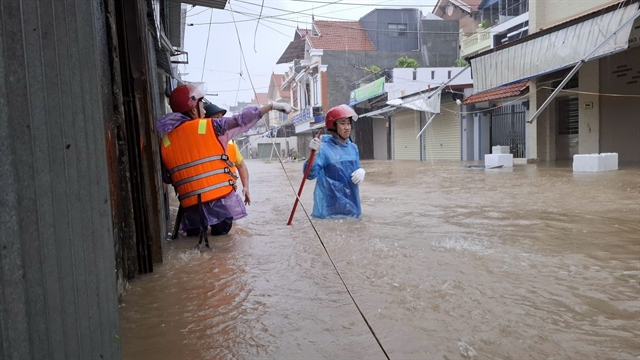
Typhoon Yagi wreaks havoc across northern Việt Nam, killing four, injuring several others
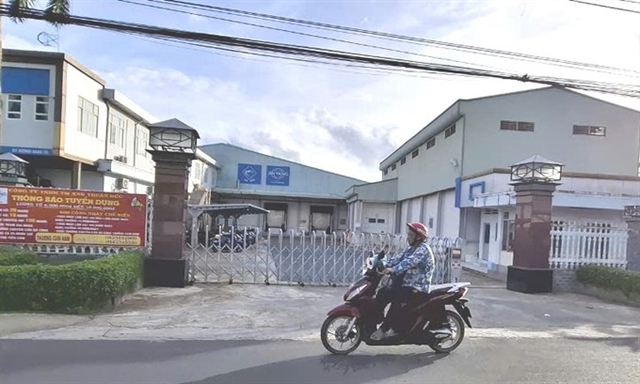
Chinese-directed company fined $90,000 for environmental violations
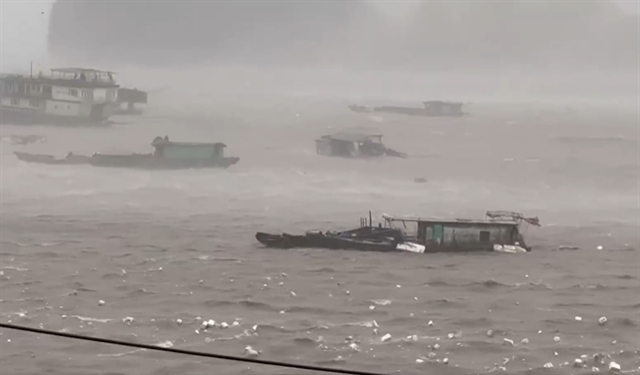
Typhoon Yagi making landfall in Quảng Ninh and Hải Phòng
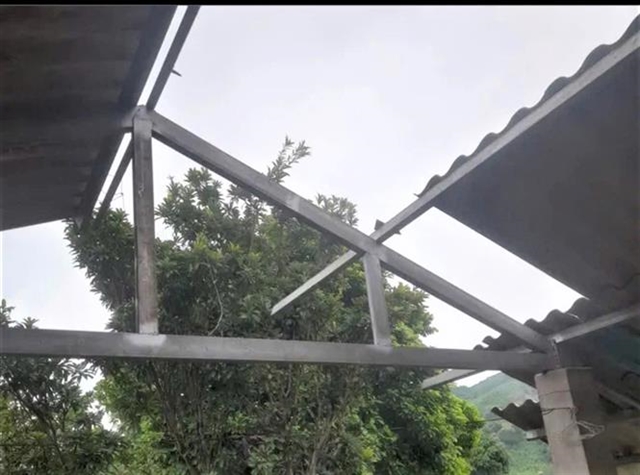
Heavy rain and strong winds uproot trees, damage houses across northern provinces
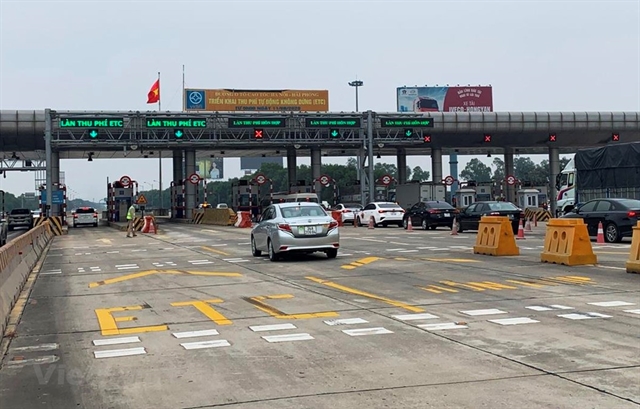
Pilot electronic toll collection on Hà Nội-Hải Phòng expressway delayed
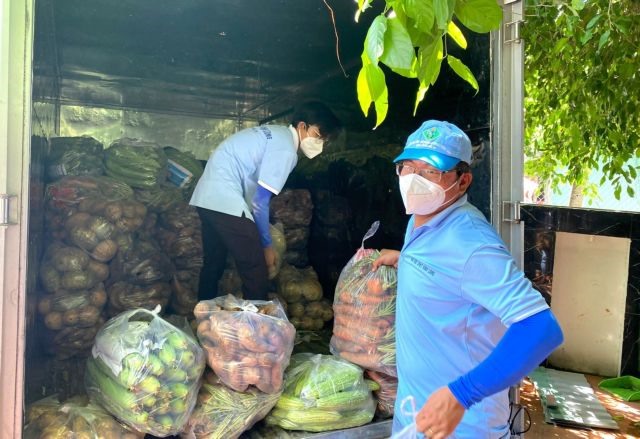
Lighting the fire of a movement: a Youth Union leader's story
As a youth leader, Đặng Hải Đăng, Secretary of the Youth Union of Vĩnh Long University of Technology and Education, is a pioneer in the Union's activities.
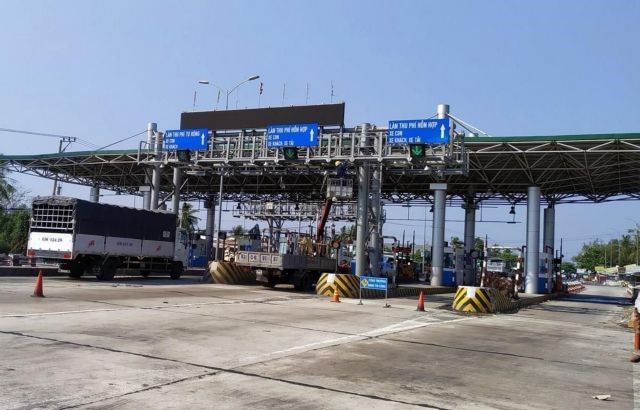
Too many booths too close for comfort in southern VN
Many toll stations on roads built under Build-Operate-Transfer (BOT) contracts in the southern region, including HCM City, are improperly located, frustrating the public, especially drivers.
Disabled people overcome difficulties to find success
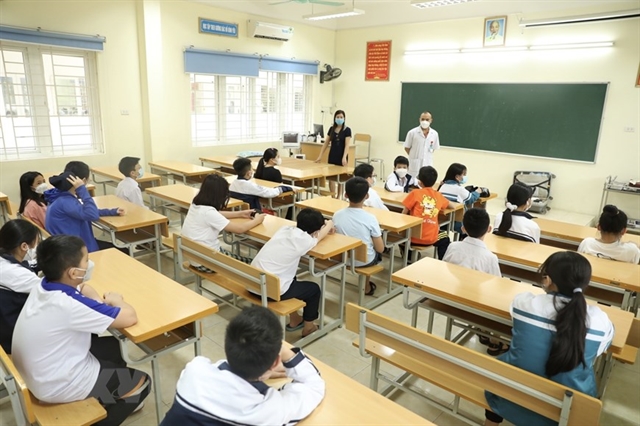
Việt Nam’s daily COVID infections continue falling, 12,012 cases recorded Monday
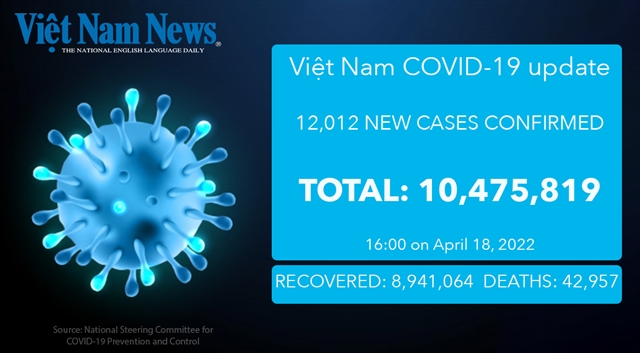
Việt Nam reports 12,012 new cases on Monday

More ageing coffee trees to be replaced in VN
The Ministry of Agriculture and Rural Development plans to replace 75,000ha of ageing coffee trees and graft 32,000ha more by 2025 to improve their yield and quality.
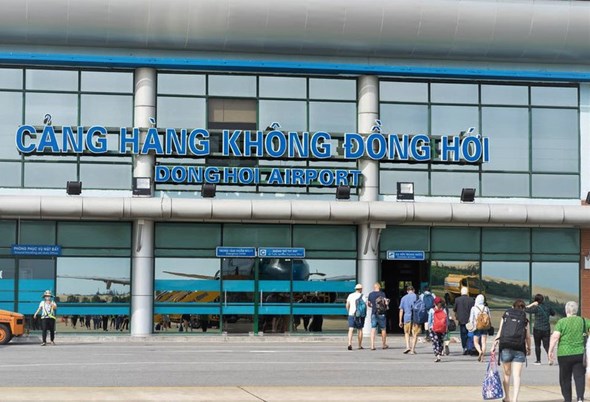
Đồng Hới Airport to upgrade with more international flights
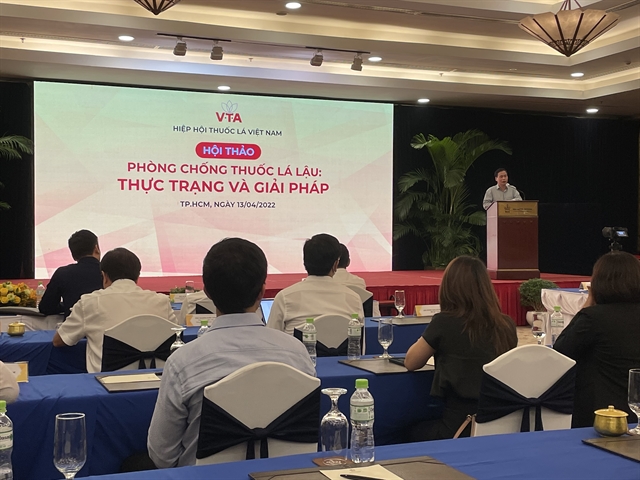
Workshop mulls ways to crack down on contraband tobacco
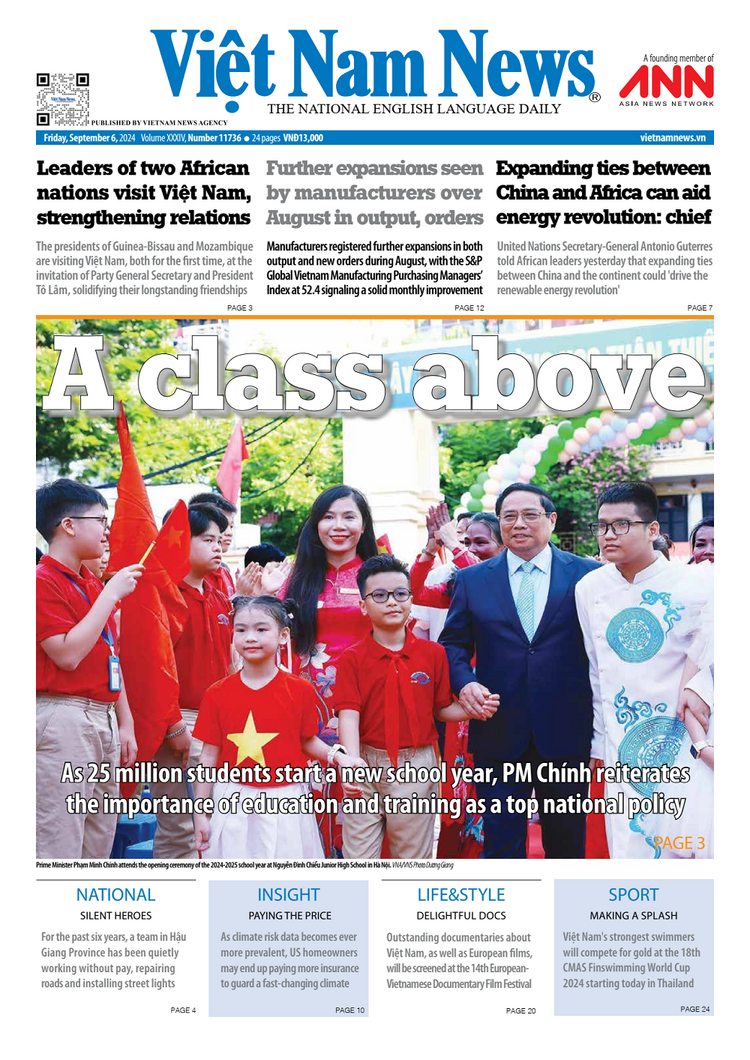
- Print Advertisement
- Online Advertisement

Mozambican President's visit - a milestone in bilateral relations: diplomat
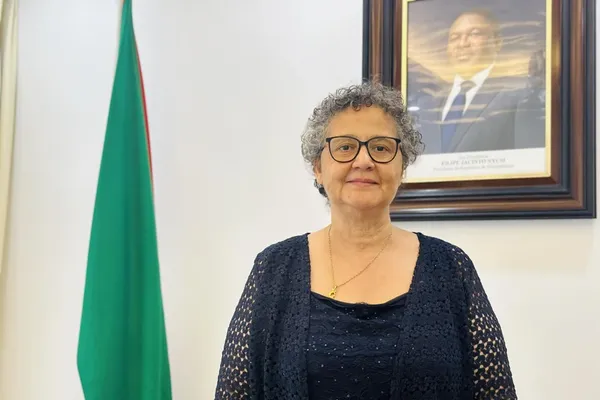
Mozambican President’s visit to promote bilateral economic partnership: diplomat

PM extends congratulations to new French counterpart
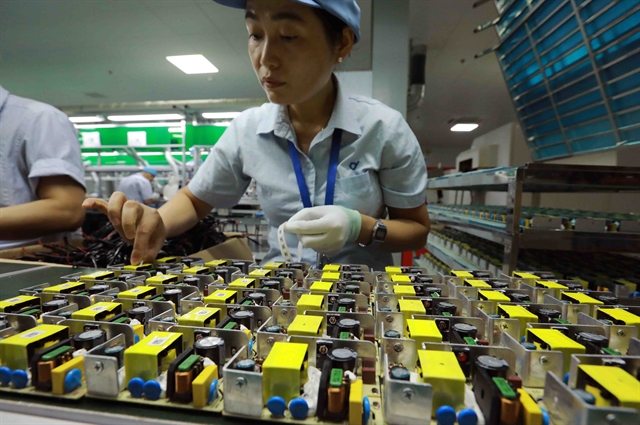
Investment from Taiwan (China) is fuelling Việt Nam’s high-tech industry
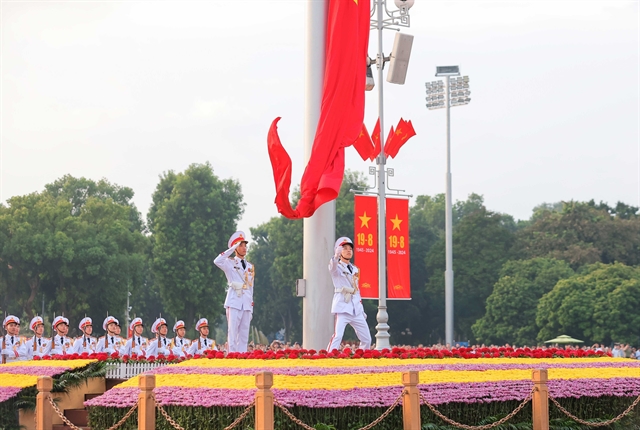
Flag raising ceremony to celebrate 79th National Day
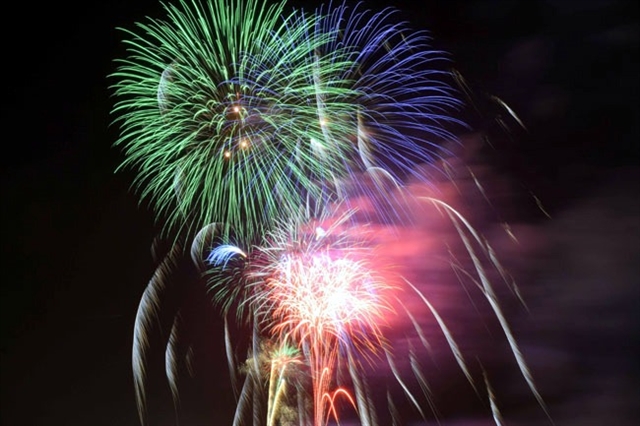
HCMC bans traffic on some streets for National Day fireworks
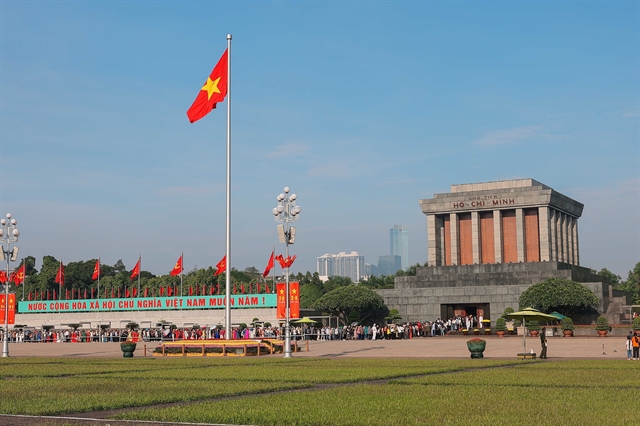
79 years since President Hồ Chí Minh read the Declaration of Independence: Upholding a historic vow

Innovation in economic growth models - essential steps for sustainable development

- Party General Secretary leaves huge void to fill
- Remembering a visionary leader
- US Secretary of State Blinken arrives in Hà Nội to pay tribute to late General Secretary
- Hà Nội brings agricultural policies into practical production
- ‘Hà Nội Days in HCM City’ gets underway
- Việt Nam's Semiconductor Industry : Growth and Strategic Goals
- Cultivating local talent for new semiconductor market
- Hà Nội must invest in HR for semiconductors
- Solving challenges critical to country's new semiconductor industry and market

- Điện Biên airport serves over 12,000 passengers on victory occasion
- Badge of honour: the spirit of Điện Biên Phủ soldiers lives on
- Điện Biên's historical relic sites flooded with tourists
- New routes help tourists discover Hà Nội's destinations
- Ancient village preserves mother-of-pearl craft
- Hoàn Kiếm pedestrian space in Hà Nội to open throughout New Year 2024 holiday

- 29 years of building our home with Unilever Vietnam
- SID – VIETSTAR: Achievements in Board Governance Training for Vietnam in Singapore
- CapitaLand Development launches ‘Together We Step: Step For Kindness’ charity campaign in Hà Nội

- Journalists work to spread love for Trường Sa
- Six streets in Hà Nội to be named after Trường Sa Archipelago’s islands
- Việt Nam concerned about recent developments in East Sea: Diplomat

- Let's get spicey
- Jelly mooncake
- How virtual learning prepares students for the future that does not yet exist
You are using an outdated browser. Please upgrade your browser to improve your experience.
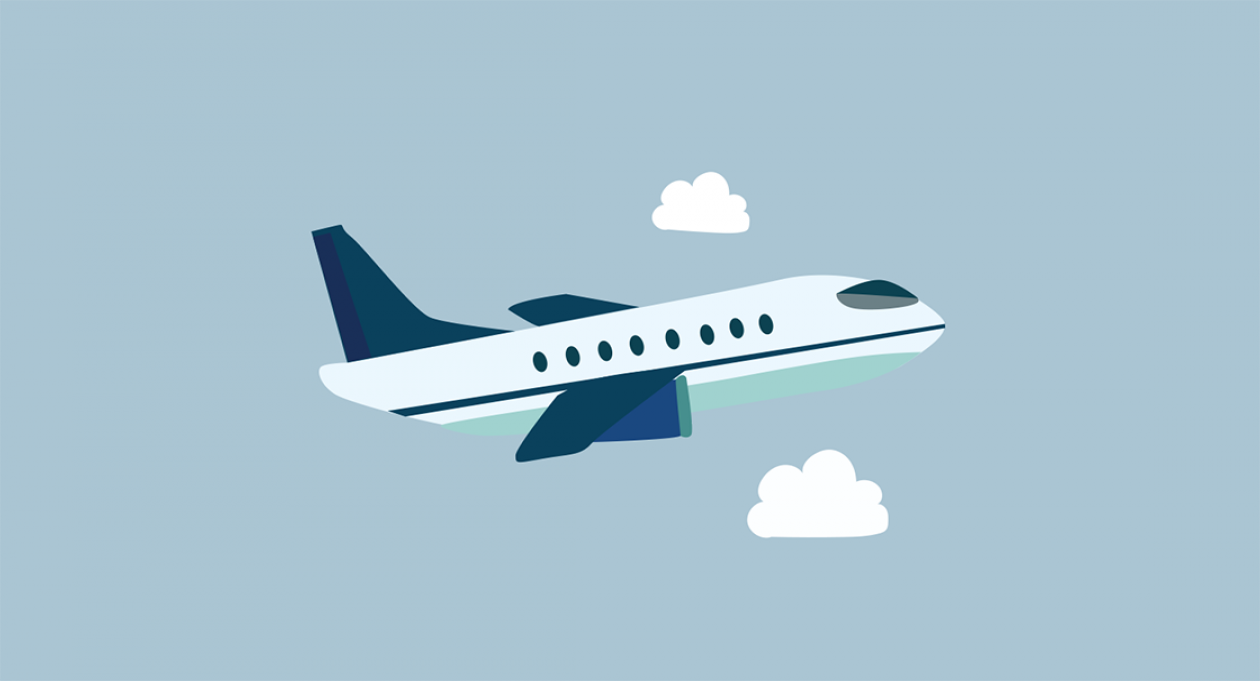
- New Covid-19 tourism policies in Vietnam
UPDATED: May 14, 2021
In response to a spate of new cases of COVID-19, Vietnam is stepping up its measures to stop the virus from entering and spreading within the country.
Foreigners in the country will need to follow the instructions and regulations of the vietnam ministry of health to prevent the spread of covid-19. below is an outline of new policies related to travel, as well as the health precautions vietnam is requiring of all locals and foreigners., visa exemptions and temporary bans.
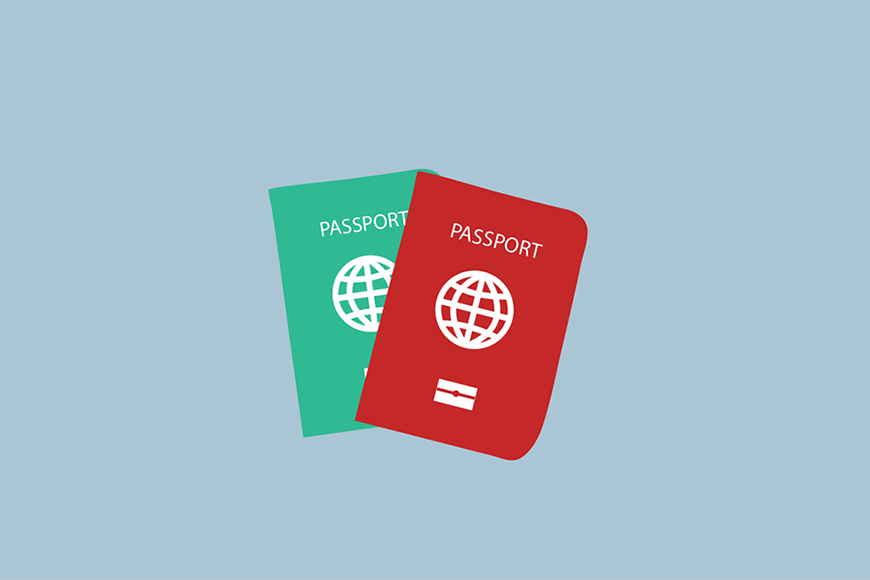
From March 22, 2020 until further notice, Vietnam has temporarily suspended entry for all foreign nationals. Vietnam will not be issuing visas or allowing entry to any travellers at this time, including those who already hold visas or visa exemptions. Only Vietnamese nationals, foreigners on diplomatic or official business, and highly skilled workers allowed to enter the country at this time. From Feb. 1, 2021 until further notice, anyone entering Vietnam must undergo medical checks and 21-day quarantine upon arrival.
All foreigners who entered Vietnam after March 1, 2020 on visa exemptions, e-visas or tourism visas will be given automatic stay extensions at no charge until May 30, 2021. Travellers still in the country must declare their temporary residence to local police, through their landlords or hotels, and must complete Vietnam's online health declaration here .
Visitors who entered the country before March 1, 2020 may be considered for the extension, provided they can show an official letter from their embassy or consulate stating they were unable to leave the country due to objective reasons (letter must also be translated to Vietnamese). Foreigners who have undergone quarantine or treatment for COVID-19 in Vietnam are also eligible for the extension and should bring their certification documents to immigrations when leaving Vietnam.
For questions about the new policy, please call Vietnam's Immigration Department at 024 3938 7320.
Those who have entered Vietnam for business, visiting relatives, or purposes other than travel should contact a visa agent to address their visa concerns.
You can find a list of embassies and consulates in Vietnam on this page .
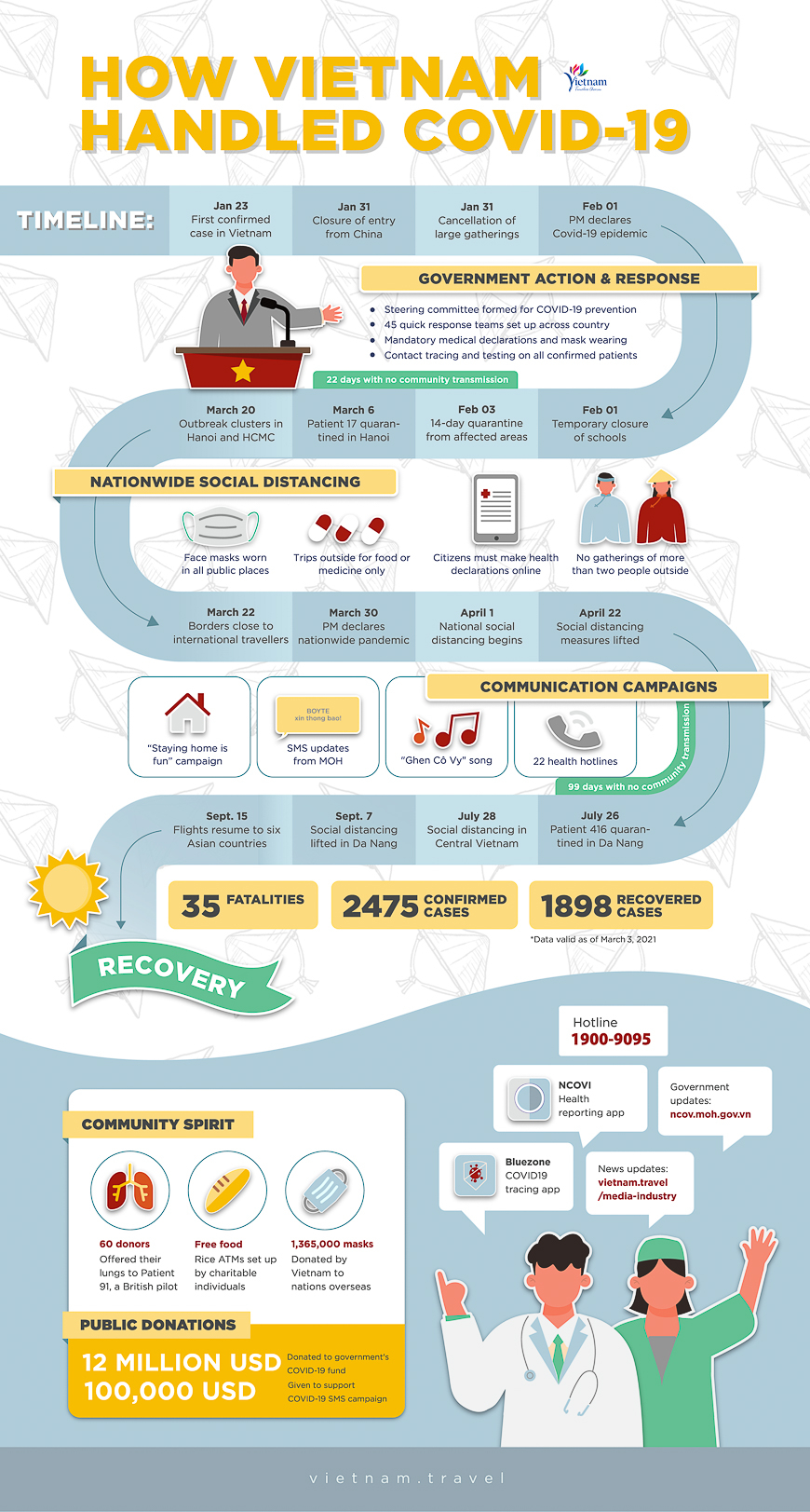
Health checks on arrival
All travellers entering Vietnam need to submit mandatory health declarations on arrival. This form can be filled out electronically at airports and border crossings, or submitted online here on the day of entry into Vietnam. Travellers are legally responsible to ensure the information is true and accurate. All foreigners will need to comply with official health procedures when in Vietnam.
In an effort to stop the spread of the virus, Vietnam's Ministry of Health has ordered all Vietnamese and foreigners in the country to wear face masks in public places. Those found not wearing masks or not disposing of masks properly will be fined.
Quarantine regulations in Vietnam
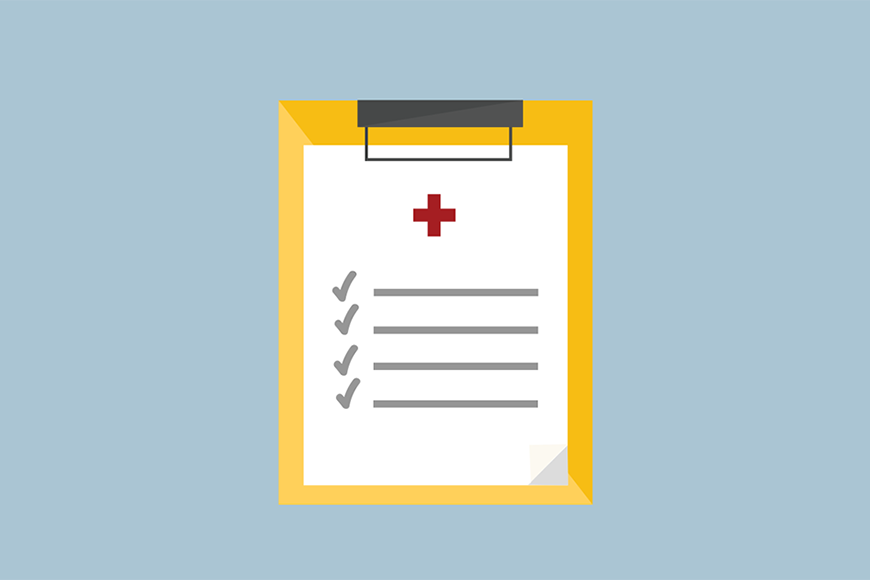
In order to minimise the risk of contagion, Vietnam is isolating individuals who have come into close contact with others carrying the COVID-19 disease. If you have any contact -- such as the sharing of flights, vehicles, or hotels -- with others who have tested positive for COVID-19 while in Vietnam, you can expect to be tested for the virus and placed in 21-day quarantine.
Vietnam observes several levels of quarantine:
- Self-quarantine in homes or hotels with regular check-ups by local health authorities,
- Quarantine in health establishments for those showing symptoms of the virus, as well as those who have tested positive for COVID-10 and those in close contact with them,
- Quarantine in non-medical establishments for those returning from high-risk areas, and
- Closed-off communities for areas with high numbers of confirmed infections.
Temporary closure of tourism sites
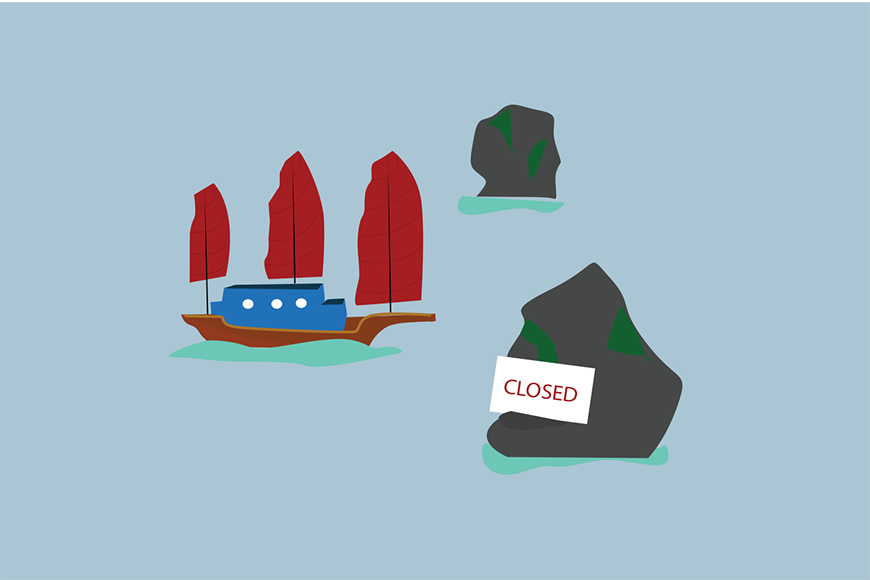
Within the country, Vietnamese health officials have temporarily isolated several locations that are deemed high-risk, or those that have been recently visited by travellers with confirmed cases of the virus. Tourism sites across the country are also setting aside closure days to disinfect their premises. From April 23, tourism attractions in the country are allowed to reopen but must ensure safety measures are in place for all visitors.
Screening centres and health hotlines
Travellers with symptoms of COVID-19 or those concerned they may have been exposed to the SARS-CoV-2 virus should call Vietnam’s health hotline: 1900 3228
Vietnam has appointed 30 screening centres nationwide to carry out testing and diagnosis of COVID-19 disease, as well as 45 quick response teams to assist health facilities in the processing and treatment of COVID-19 patients. For the full list of screening centres, please see this link .
For a full overview of the COVID-19 situation in Vietnam as it relates to travellers, as well as daily updates, please see our travel advisory here .
Sign up for our newsletter to receive our best stories in your inbox.
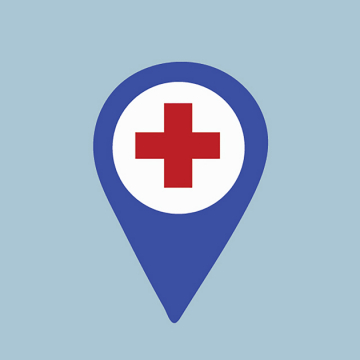
- You are here:
- Things to do
Create an account
Already have an account? Click here to sign in
By clicking submit, you agree to our Privacy Policy and Terms of Use
Sign in with your social accounts
Sign in with your email
Forgot password? Click here to get it back
Don't have an account? Sign up here
Forgot Password
The entered email has subscribed for Vietnam Tourism monthly newsletter
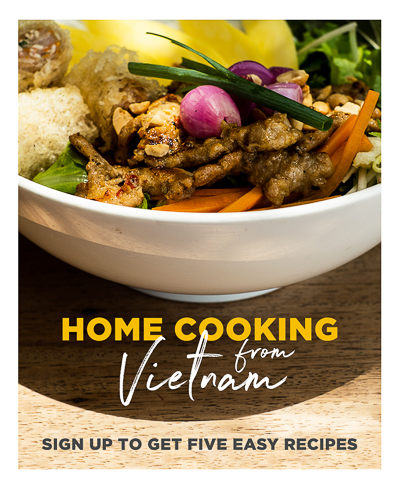

Travel Insurance Vietnam
Travel insurance for vietnam.
Ah, Vietnam – a vibrant chaos of scooters zipping around, ancient temples that have seen it all, and greenery that makes you feel like you're in a nature hug. This Southeast Asian gem isn't just about rich culture and history – it's also the kingdom of adventures and, of course, the land of the mighty pho. Before you kick off your shoes and wade into the wonders of Vietnam, let's talk about practical matters. While Vietnam's known for the stunning Ha Long Bay and its gregarious people, it's also a place where even the savviest traveler might hit a speed bump. Let's dive into the everything you need to know abouet travel insurance for Vietnam so you can face unexpected travel hiccups with confidence.
- What should your Travel insurance cover for a trip to Vietnam?
- How does Travel Insurance work for Vietnam?
- Do I need Travel Insurance for Vietnam?
- How much does Travel Insurance cost for Vietnam?
- Our Suggested AXA Travel Protection Plan
What Types of Medical Coverage Do AXA Travel Protection Plans Offer?
Are there any covid-19 restrictions for travelers to vietnam.
- Traveling with pre-existing Medical Conditions?
What should your travel insurance cover for a trip to Vietnam?
At a minimum, your travel insurance should cover trip cancellation, trip interruption and emergency medical expenses. When it comes to international travel, the US Department of State outlines key components that should be included in your travel insurance coverage. AXA Travel Protection plans are designed with these minimum recommended coverages in mind.
- Medical Coverage – The top priority is making sure your health is in order. With AXA Travel Protection, you can have access to quality healthcare during your trip overseas in the event of unexpected medical emergencies.
- Trip Cancellation & Interruptions – Assistance against unexpected trip disruptions can dampen the mood, AXA Travel Protection offers coverage against unforeseen events.
- Emergency Evacuations and Repatriation – In situations where transportation is dire, AXA Travel Protection offers provisions for emergency evacuation and repatriation.
- Coverage for Personal Belongings – AXA offers coverage for your belongings with assistance against lost or delayed baggage.
- Optional Cancel for Any Reason – For added flexibility, AXA offers optional Cancel for Any Reason coverage, allowing you to cancel your trip for non-traditional reasons. Exclusive to Platinum Plan holders.
In just a few seconds, you can get a free quote and purchase the best travel insurance for Vietnam.
How does Travel Insurance for Vietnam work?
Imagine: you're on a motorbike adventure through the winding roads of Dalat. Suddenly, an unexpected slip or a minor mishap occurs, and you find yourself in need of medical attention. Here's where an AXA Travel Protection plan steps in with its "Emergency Medical Expenses" benefit. From hospital stays to doctor's fees, AXA can support and assist so you're not left navigating the complications of the Vietnamese healthcare system. Moreover, if the situation takes a serious turn and requires evacuation to the nearest medical facility or even repatriation, AXA Travel Protection's got your back. Here’s how travelers can benefit from an AXA Travel Protection Plan:
Medical Benefits:
- Emergency Medical Expenses: Should you fall ill or have an accident during your trip, your policy may offer coverage for medical expenses, including hospital stays and doctor's fees.
- Emergency Evacuation & Repatriation: In case of a serious medical emergency, your policy may include provisions for evacuation to the nearest appropriate medical facility or repatriation.
- Non-Emergency Evacuation & Repatriation : In non-medical crises (e.g., political unrest), your policy may cover evacuation or repatriation, subject to policy terms.
Pre-Departure Travel Benefits:
- Trip Cancellation: You may be eligible for reimbursement if you cancel your trip due to a sudden illness or injury.
- COVID-19 Travel Insurance: Coverage is available for trip cancellation and medical expenses related to COVID-19, subject to policy terms and conditions.
- Trip Delay: If your flight faces delays due to unforeseen circumstances, you may have coverage for additional expenses such as meals and accommodations.
Post-Departure Travel Benefits:
- Trip Interruption: In case of an unexpected event, you could be eligible for reimbursement for the unused portion of your trip.
- Missed Connection: If you miss a connecting flight due to delays or cancellations, this coverage may help with expenses like rebooking fees and accommodations.
Baggage Benefits:
- Luggage Delay: If the airline delays your checked baggage, your policy might offer reimbursement for essential items like clothing and toiletries.
- Lost or Stolen Luggage: In the unfortunate event of permanent loss or theft of your luggage, your policy may offer reimbursement for its value, assisting you in replacing your belongings.
Additional Optional Travel Benefits:
- Rental Car (Collision Damage Waiver): Exclusive to Gold & Platinum plan policy holders, this optional benefit gives travelers extra coverage on their rental car against damage and theft.
- Cancel for Any Reason: Exclusive to Platinum plan policy holders; this optional benefit gives travelers more flexibility to cancel their trip for any reason outside of their standard policy.
- Loss Skier Days: Exclusive to Platinum plan policy holders, this optional benefit offers reimbursement to mitigate some costs associated with pre-paid ski tickets that you or your traveling companion cannot use due to specified slope closures.
- Loss Golf Days: Exclusive to Platinum plan policy holders, this optional benefit offers reimbursement to mitigate the expenses linked to prepaid golf arrangements that you or your travel companion are unable to utilize due to specified golf closures.
Do I need Travel Insurance for Vietnam?
Although it's not required to have travel insurance for Vietnam, we highly recommend that travelers think about getting an insurance plan to make sure they stay well-protected during their visit. Why? There are several reasons:
Medical Emergencies: Given the adventurous activities in Vietnam, the potential for minor mishaps or unexpected health issues is notable. Having coverage for emergency medical expenses ensures that you can seek necessary medical attention without worrying about the financial burden.
Lost Baggage: Airlines sometimes mishandle baggage, and the last thing you want is to be without your essentials in an unfamiliar place. Travel insurance offers to cover the cost of replacing necessary items, allowing you to continue on.
Emergency Evacuation & Repatriation: While Vietnam's healthcare has improved through the years, the quality of healthcare in more rural or remote areas may not be as advanced. In the event of a serious medical emergency, having coverage for emergency evacuation to the nearest suitable medical facility or repatriation becomes crucial.
How much does Travel Insurance cost for Vietnam?
In general, travel insurance costs about 3 – 10% of your total prepaid and non-refundable trip expenses. The cost of travel insurance depends on two factors for AXA Travel Protection plans:
- Total Trip cost: The total non-prepaid and non-refundable costs you have already paid for your upcoming trip. This includes prepaid excursions, plane tickets, cruise costs, etc.
- Age: Like any other insurance type, the correlation is rooted in increased health risks associated with older individuals. It's important to note that this doesn't make travel insurance unattainable for older individuals.
With AXA Travel Protection, travelers to Ecuador will be offered three tiers of insurance: Silver, Gold and Platinum . Each provides varying levels of coverage to cater to individual's preferences and travel needs.
Our Suggested AXA Travel Protection Plan
AXA presents travelers with three travel plans – the Silver Plan , Gold Plan , and Platinum Plan , each offering different levels of coverage to suit individual needs. Given that Vietnam hospitals often do not accept U.S. health insurance or Medicare, we genuinely recommend travelers consider purchasing any of these plans, particularly for the crucial coverage they offer for emergency accident and sickness medical expenses. Travelers to Vietnam may want extra coverage. The Platinum Plan is a good choice for travelers who want a bit of extra coverage. Cancel for Any Reason is an option that offers coverage for canceling a trip for any reason. The Collision Damage Waiver coverage is also optional. It covers collisions, theft or damage to a rental car being used during your Vietnam trip.
AXA covers three types of medical expenses:
- Emergency medical expenses
- Emergency evacuation & repatriation
- Non-medical emergency evacuation & repatriation
Emergency Medical: Can cover medical expenses, hospital stays, and even emergency evacuations, covering the expenses of hefty bills and ensuring access to quality healthcare while away from home.
Emergency Evacuation and Repatriation: Can cover your immediate transportation home in the event of an accidental injury or illness.
Non-Medical Emergency Evacuation and Repatriation: Offers assistance in unexpected situations such as political unrest or natural disasters, ensuring safe and timely relocation to a secure location or repatriation back home.
Starting in 2023, travelers heading to Vietnam no longer have to show a valid Covid-19 vaccine card or a negative PCR test. The travel restrictions in Vietnam have been lifted, making the entry process simpler for all travelers.

Traveling with pre-existing Medical Conditions?
Traveling with pre-existing medical conditions can complicate your plans, but with AXA Travel Protection, we're here to support you during your trip. Our Gold and Platinum plans offer coverage for pre-existing medical conditions. The Platinum plan, in particular, is our highest-offered choice for travelers who want our highest coverage limits and optional add-ons,
What does this mean for you? If you've got a medical condition that's been hanging around, you can qualify for coverage under our Gold and Platinum plans with a pre-existing medical condition , so long as it’s within 14 days of placing your initial trip deposit and in our 60-day look-back period. We're here to ensure you travel easily, no matter your health situation.
1. Can you buy travel insurance after booking a flight?
You can buy travel insurance even after your flight is booked.
2. When should I buy Travel Insurance to Vietnam?
Purchasing travel insurance for your trip is advisable as soon as you have made your initial trip deposit (prepaid and non-refundable trip costs.) AXA Travel Protection offers coverage as soon as you purchase your protection plan. We can give coverage against unforeseen events before you leave for your trip. Additionally, our policies offer coverage for preexisting medical conditions and Cancel for Any Reason if you purchase your protection within 14 days of making your initial trip deposit.
3. Do Americans need travel insurance in Vietnam?
While travel insurance is not a mandatory requirement for Americans visiting Vietnam, it is highly recommended. Travel insurance can provide financial protection and assistance in case of unexpected events such as medical emergencies, trip cancellations, lost luggage, or other travel-related issues.
4. What is needed to visit Vietnam from the USA?
For a trip to Vietnam, US citizens need a visa for tourism or business, obtainable from the Vietnamese Embassy in the US or through a single-entry e-visa on the Vietnam Immigration website. Make sure your passport is valid for at least six months beyond your intended stay and has at least one blank visa page.
5. What happens if a tourist gets sick in Vietnam?
If you become sick in Vietnam, travelers with AXA Travel protection can contact the AXA Assistance hotline at 855-327-1442 . Contact information is typically provided within the insurance documentation. Please ensure to read through your policy details and information.
Disclaimer: It is important to note that Destination articles are for editorial purposes only and are not intended to replace the advice of a qualified professional. Specifics of travel coverage for your destination will depend on the plan selected, the date of purchase, and the state of residency. Customers are advised to carefully review the terms and conditions of their policy. Contact AXA Travel Insurance if you have any questions. AXA Assistance USA, Inc.© 2023 All Rights Reserved.
AXA already looks after millions of people around the world
With our travel insurance we can take great care of you too
Get AXA Travel Insurance and travel worry free!

Travel Assistance Wherever, Whenever
Speak with one of our licensed representatives or our 24/7 multilingual insurance advisors to find the coverage you need for your next trip.
- Travel Advisories |
- Contact Us |
- MyTravelGov |
Find U.S. Embassies & Consulates
Travel.state.gov, congressional liaison, special issuance agency, u.s. passports, international travel, intercountry adoption, international parental child abduction, records and authentications, popular links, travel advisories, mytravelgov, stay connected, legal resources, legal information, info for u.s. law enforcement, replace or certify documents.
Before You Go
Learn About Your Destination
While Abroad
Emergencies
Share this page:
Travel Advisory July 24, 2023
Vietnam - level 1: exercise normal precautions.
Reissued with obsolete COVID-19 page links removed. Exercise normal precautions in Vietnam.
Read the country information page for additional information on travel to Vietnam.
If you decide to travel to Vietnam:
- Enroll in the Smart Traveler Enrollment Program (STEP) to receive Alerts and make it easier to locate you in an emergency.
- Follow the Department of State on Facebook and Twitter .
- Review the Country Security Report for Vietnam.
- Visit the CDC page for the latest Travel Health Information related to your travel.
- Prepare a contingency plan for emergency situations. Review the Traveler’s Checklist .
Embassy Messages
View Alerts and Messages Archive
Quick Facts
Must have six months’ validity remaining.
One visa page required for entry stamp.
Not required.
None. However, Vietnamese Dong in excess of VND 15,000,000 or foreign currency in excess of 5,000 U.S. dollars or equivalent must be declared.
Embassies and Consulates
U.S. Embassy Hanoi - Consular Annex 170 Ngoc Khanh Ba Dinh District Hanoi, Vietnam Telephone: From outside Vietnam: +84-24-3850-5000 From the U.S.: 011-84-24-3850-5000 From landline within Hanoi: 3850-5000 From mobile or landline within Vietnam: 024-3850-5000
Emergency: From outside Vietnam: +84-24-3850-5000 or +84-24-3850-5105 From the U.S.: 011-84-24-3850-5000 From landline within Hanoi: 3850-5000 or 3850-5105 From mobile or landline within Vietnam: 024-3850-5000 or 024-3850-5105 Fax: (+84-24) 3850-5010 Email: [email protected] Facebook
U.S. Consulate General Ho Chi Minh City 4 Le Duan, District 1 Ho Chi Minh City, Vietnam Telephone: From outside Vietnam: +84-28-3520-4200 From the U.S.: 011-84-28-3520-4200 From landline within Ho Chi Minh City: 3520-4200 From mobile or landline within Vietnam: 028-3520-4200
Emergency: From outside Vietnam: +84-28-3520-4200 From the U.S.: 011-84-28-3520-4200 From landline within Ho Chi Minh City: 3520-4200 From mobile or landline within Vietnam: 028-3520-4200 Fax: (+84-8) 3520-4244 Email: Contact Us Here
EMERGENCY TELEPHONE NUMBERS WITHIN VIETNAM
Police: 113 Fire brigade: 114 Ambulance: 115
Destination Description
Learn about the U.S. relationship to countries around the world.
Entry, Exit and Visa Requirements
Entry Requirements: You must have a valid passport and a visa (or pre-approval for a visa on arrival) to enter Vietnam. Your passport must be valid for six months beyond your planned stay, and you must have at least one blank visa page (not including the endorsement page). Visit Mission Vietnam’s website for the most current information. If you arrive in Vietnam without an appropriate visa (which could be an e-visa) or pre-approval for a visa on arrival, you will be denied entry . The U.S. Mission to Vietnam cannot assist U.S. citizens who arrive in Vietnam without required visas. U.S.-Vietnam dual nationals should consult the Department of State’s information page for Travelers with Dual Nationality and the Embassy of Vietnam for travel requirements. You must enter and exit Vietnam on the same passport. If using a Vietnamese passport to enter and exit the country, your passport must have at least six months’ validity from your return date to the United States.
Visas: The Government of Vietnam requires a “visa sponsor” for all visa categories, except for E-visa. A visa sponsor is a local business or travel agent to apply for a pre-approval letter with a Vietnamese Immigration Office in Vietnam on behalf of the traveler. Only on receipt of the pre-approval letter can a foreigner apply for an appropriate visa at a Vietnamese Embassy or Consulate abroad, or for a visa on arrival. For more information about this process, please visit the website of the Vietnamese Embassy here . When you apply for a visa to enter Vietnam, be sure to request the visa category that corresponds to your purpose of travel. Please refer to Vietnam’s Ministry of Foreign Affairs website for information detailing visa categories. If you plan to work in Vietnam, you must obtain a work permit before applying for your visa. If you change the purpose of your visit after you have received your visa, you must obtain a new visa outside of Vietnam appropriate for your new activities before beginning those activities. Under local immigration law, employment-based visas are based on a petition from a specific employer, and workers may be unable to switch jobs without securing a new visa. In addition, employers may prevent the departure of contracted employees from Vietnam if they violate contract terms. Before accepting employment in Vietnam, make sure you understand the conditions of contracts and employment-based visas.
Note that travelers with a U.S. APEC Business Travel Card will still need a valid visa to enter Vietnam. The United States is a transitional member of APEC and does not reciprocate with other economies regarding full pre-clearance benefits to applicants. As such, no countries are listed on the back of U.S. APEC Business Travel Cards and card holders are required to present any travel or identity documentation, such as a passport and visa (where applicable), required by Vietnam. If a U.S. APEC Business Travel Card holder does not conform to Vietnam’s entry requirements, the card holder may be refused entry.
Please consult Mission Vietnam’s website for more information.
Please note that Vietnam requires a valid visa, residence card, or approval from the Immigration Department to leave the country. Immigration officials will apply a fee to replace lost/stolen visas or will assess a fine for any visa overstays. The Government of Vietnam has recently increased the penalties for visa overstays, and fines can be substantial. In addition, the processing of exit visas for cases involving visa overstays can take one to two weeks, and longer for more complex cases.
If your U.S. passport is lost or stolen in Vietnam, you will need both a replacement passport and a replacement Vietnamese visa to legally remain in or depart Vietnam. The U.S. Embassy in Hanoi and the Consulate General in Ho Chi Minh City can usually issue you a limited validity replacement passport in as little as one business day for emergency purposes; however, the Vietnamese government requires three to five working days to issue a replacement visa. For lost and stolen passports, immigration officials will also request a police report. You must file a report of a lost or stolen passport with the police in the location where the loss or theft of your passport occurred, or authorities may refuse to accept the report. The U.S. Embassy and the Consulate General cannot expedite the replacement of your Vietnamese visa.
If you plan to travel from Vietnam to Laos by land, you should request that an adhesive visa be affixed to your passport instead of a detachable one. Lao immigration officials require proof that travelers have departed Vietnam, something that can only be shown with an adhesive visa. Vietnamese officials remove detachable visas from passports when travelers depart Vietnam, leaving travelers with no proof of their Vietnam departure. This situation can result in Lao officials requiring travelers to return to Vietnam.
Pre-approval for Visa on Arrival: The Government of Vietnam has authorized some businesses and travel agencies to arrange for pre-approval for a “visa on arrival” at the airport. On a receipt of a pre-approval letter, travelers may then travel to Vietnam and apply for a visa upon landing to Vietnam. Please be advised that you should not travel to Vietnam without having been issued a pre-approval letter as it may result in a denial of entry by immigration authorities. To avoid having to rearrange your travel date, please do not make travel arrangement before you receive your pre-approval letter.
E-visa: U.S. citizens can apply online for an E-visa on the Vietnam Immigration website . The E-visa is valid for a maximum of 90 days, single or multiple entry, and does not allow for renewal or extension from within the country. The E-visa is valid for a maximum of 90 days, single or multiple entry, and does not allow for renewal or extension from within the country. An E-visa is usually processed within three to five working days after the Vietnam Immigration Department receives the completed application and E-visa fee. E-visa holders must present the printed E-visa and valid passport at the port of entry. Prior to your travel with an E-visa to Vietnam, we recommend travelers to carefully check their E-visa to make sure all information is correct, and that you will enter/exit Vietnam through a port of entry that you had selected at the time of application. An error on E-visa, including minor differences between the information on the application and the biographical information on the passport, may result in a denial of entry by immigration authorities. The U.S. Embassy and Consulate General are unable to change the information on your E-visa or help expedite the process as Vietnamese E-visa is under the sole jurisdiction of the Vietnamese government.
Certificate of Visa Exemption: Vietnamese nationals residing abroad indefinitely, their spouses, and their children may apply for a Certificate of Visa Exemption. The certificate has a maximum validity of five years, during which time the holder can enter Vietnam and stay for up to six months without applying for a visa. More information can be found on the Vietnam Embassy website .
The U.S. Department of State is unaware of any HIV/AIDS entry restrictions for visitors to or foreign residents of Vietnam.
Immunization information for travelers can be found on the Centers for Disease and Control’s website .
Information about dual nationality or the prevention of international child abduction can be found on our website. For further information about customs regulations, please read our Customs Information page .
Safety and Security
The Department of State recommends that U.S. citizens overseas always maintain a high level of vigilance and take appropriate steps to increase their security awareness while traveling internationally. Please visit www.travel.state.gov for up-to-date information.
Messages regarding weather-related events are posted here and on the Embassy/Consulate General website .
While in Vietnam you are subject to Vietnamese laws. U.S. citizenship will not help you avoid arrest or prosecution. If you violate local laws, even unknowingly, you may be arrested, expelled, or imprisoned. Individuals establishing a business or practicing a profession that requires additional permits or licensing should seek information from the competent local authorities, prior to practicing or operating a business.
Vietnamese authorities routinely do not provide timely notification of the arrest of a U.S. citizen to the U.S. Embassy or Consulate General or approval for consular officials to visit U.S. citizens. The delays for both – particularly for access – can take several weeks. Note that if you enter Vietnam with a non-U.S. passport, the Government of Vietnam has different notification and access responsibilities for the U.S. Embassy or Consulate General. See our webpage for further information.
Small-scale, peaceful protests occasionally occur in Vietnam’s major cities, but large-scale demonstrations are rare. As in any country, you should avoid large protests, as they can become violent with little or no warning.
The Government of Vietnam may not allow or authorize travel to certain areas of the country that are deemed sensitive. Check with local authorities before visiting border areas to see if you need to obtain a travel permit issued by local authorities. U.S. citizens have been detained after traveling in areas close to the Vietnamese borders with the People’s Republic of China, Cambodia, and Laos. These areas are not always marked, and there are no warnings about prohibited travel.
Safety standards in Vietnam are not at the same level as those in the United States and vary greatly from company to company and province to province. This is especially true for fire safety codes. Travelers should be aware that many buildings, including hotels, shops, and restaurants, have limited or no fire safety equipment or emergency exits. Ground and water transportation also lack safety regulations.
Travelers to Vietnam should have no expectation of privacy and should safeguard all personal documents and electronic devices. Exercise caution when discussing sensitive or proprietary information.
Crime: Crime in Vietnam is rated high. Exercise vigilance and the same commonsense security precautions you would in any major metropolitan city in the United States.
Violent crime against foreigners is rare; however, petty crimes, such as theft, bag grabs, and pickpocketing occur regularly, especially in crowded areas and tourist locations. Typically, there is a rise in petty crime during the Christmas and Tet (Lunar New Year) holiday seasons, including during the day and in well-lit areas. Motorcyclists are known to snatch bags, cameras, cell phones, and other valuables from individuals riding or walking on the street. If you are targeted by thieves, do not resist, and report the incident immediately to local police and to the U.S. Embassy in Hanoi or the U.S. Consulate General in Ho Chi Minh City. Keep a tight hold on bags as you enter and exit vehicles and as you walk around. Hold tightly to cell phones when using them outside and lock and stow phones until you actually need to use them.
Some U.S. citizens have reported threats of death or physical injury connected to business-related disputes. You should report such threats to local authorities and if you feel unsafe, you should depart the country.
Keep your passport and other important valuables in your hotel in a safe or another secured location at all times and carry both photo and digital copies of your passport. You should immediately report the loss or theft of your U.S. passport to the local police and the U.S. Embassy or the U.S. Consulate General. See section on “Visas” for information on what to do if your passport/visa are lost or stolen.
Sexual Assault: Women travelling alone may be subject to some forms of harassment and verbal abuse. Sexual assault, harassment and rape do occur. To minimize the risk avoid travelling alone, especially at night; remain particularly vigilant in less populous areas; and be careful when dealing with strangers or recent acquaintances. Local authorities may not always respond adequately to reports of sexual violence and harassment. If you are the victim of a sexual assault, you should report it immediately to local authorities and to the U.S. Embassy or Consulate General. Never leave food or drinks unattended or in the care of strangers. Be wary of accepting snacks, beverages, gum, or cigarettes from new acquaintances. These items may contain drugs that could put you at risk of sexual assault and robbery.
Male violence against women and sexual harassment is often ignored by the police. In areas foreigners frequent, women have reported harassment and assault such as men exposing themselves, asking for sexual favors, and groping.
Drugs: Recreational drugs available in Vietnam can be extremely dangerous and can result in death. Drugs sold in Vietnam may be fake, synthetic, or laced with toxic ingredients undetectable to the buyer. This includes nitrous oxide balloons widely available in nightlife establishments. You should also avoid purchasing liquor or cigarettes from street vendors or strangers, as the authenticity of the contents cannot be assured.
Victims of Crime: U.S. citizen victims of sexual assault are encouraged to contact the U.S. Embassy or Consulate General for assistance. Vietnam’s local equivalent of an emergency line is 113. Local police will issue a report of a crime, but generally will only initiate investigations for crimes they determine serious, which do not always equate with U.S. standards. Investigations can take several months or even years to complete.
In the event you are a victim of a crime, local police will issue a crime report in Vietnamese, but generally will only initiate investigations for crimes they determine serious. While the overall situation is improving, some police have asked for bribes, ostensibly to support local police efforts or to facilitate investigation of a crime. If you are involved in a situation where a police officer is soliciting money, contact American Citizen Services at the U.S. Embassy or Consulate General.
See our webpage on help for U.S. victims of crime overseas .
We can:
- Help you find appropriate medical care.
- Assist you in reporting a crime to the police.
- Contact relatives or friends with your written consent.
- Provide general information regarding the victim’s role during the local investigation and following its conclusion.
- Provide a list of local attorneys.
- Provide information on victim’s compensation programs in the United States.
- Provide an emergency loan for repatriation to the United States and/or limited support in cases of destitution.
- Help you find accommodation and arrange flights home.
- Replace a stolen or lost passport.
Domestic Violence: U.S. citizen victims of domestic violence are encouraged to contact the Embassy or Consulate General for assistance . Note that local authorities take a different attitude towards domestic violence cases and are hesitant to get involved in cases involving foreigners. Vietnam has very limited infrastructure to support victims of domestic violence.
Tourism: The tourism industry is unevenly regulated, and safety inspections for equipment and facilities do not commonly occur. Hazardous areas/activities are not always identified with appropriate signage, and staff may not be trained or certified either by the host government or by recognized authorities in the field. In the event of an injury, appropriate medical treatment is typically available only in/near major cities. First responders are generally unable to access areas outside of major cities to provide urgent medical treatment. U.S. citizens are encouraged to purchase medical evacuation insurance. See our webpage for more information on insurance providers for overseas coverage .
Local Laws & Special Circumstances
Criminal Penalties: You are subject to Vietnamese laws. If you violate local laws, even unknowingly, you may be expelled, arrested, or imprisoned. Individuals establishing a business or practicing a profession that requires additional permits or licensing should seek information from the competent local authorities, prior to practicing or operating a business. Penalties for possessing, using, or trafficking in illegal drugs in Vietnam are severe, and convicted offenders can expect long jail sentences and heavy fines, or even the death penalty. Police periodically raid nightlife establishments suspected of engaging in the drug trade and during these raids will subject all patrons present to drug testing at the police station. A positive result, regardless of whether drugs were consumed in Vietnam or before entry, may result in criminal charges.
In Vietnam, you may be taken in for questioning if you do not have proper ID, such as a passport or a copy of your visa. Driving under the influence of alcohol resulting in a fatal accident could lead to immediate imprisonment. If you break local laws in Vietnam, your U.S. passport will not help you avoid arrest or prosecution. Note that the Vietnamese legal system allows for lengthy criminal investigation periods that can lead to prolonged pre-trial detention; some investigations can last years without any explanation.
Furthermore, some laws are also prosecutable in the United States, regardless of local law. You can be prosecuted in the United States for engaging in sexual conduct with children or for using or disseminating child pornography in a foreign country regardless of the legality of these activities under the host country’s laws.
Arrest Notification in Vietnam: If you are arrested or detained, ask police or prison officials to notify the U.S. Embassy or Consulate General immediately. There are often delays in notification by the Vietnamese authorities to the U.S. Embassy or Consulate General and officials have been known to delay consular access to prisoners for several weeks.
Counterfeit and Pirated Goods: Although counterfeit and pirated goods are prevalent in many countries, they may still be illegal according to local laws. You may also pay fines or forfeit them upon return to the United States. See the U.S. Department of Justice website for more information.
Gambling: Gambling is highly regulated by the government and persons or businesses running games or gambling halls are required to be licensed. The Government of Vietnam pursues cases of running or playing in unlicensed games aggressively. There are currently U.S. citizens serving jail sentences of three to five years because of illegal gambling.
Dual Nationality: Dual nationality is accepted by the Vietnamese government in some, but not all, circumstances. However, dual nationals should be aware that Vietnam recognizes their Vietnamese citizenship as primary before others. In such cases, the U.S. Embassy and Consulate General may be limited in the consular services we are able to provide. U.S. citizens who also hold Vietnamese citizenship and are currently residing in Vietnam may wish to contact local authorities and/or seek competent legal advice on how local laws may affect their status. For detailed information on Vietnamese nationality law and other legal issues visit the Embassy of Vietnam website .
Work Authorization: The Government of Vietnam maintains strict laws with respect to foreign workers. U.S. citizens planning to work in Vietnam should make sure that they are in full compliance with Vietnamese regulations. Penalties can be severe and include deportation, fines, or detention. Vietnam immigration law allows for companies sponsoring foreign employees to exercise control over their employees’ visas, including prohibiting their exit from the country if they have any outstanding debts.
Teaching English: We advise those considering accepting an English teaching job in Vietnam to carefully review the terms of the contract regarding working and living conditions and to ask for multiple references from persons familiar with the institution, especially former U.S. citizen employees, before committing to contracts. Some U.S. citizens have reported their employers have reneged on contract terms, including offering significantly lower salaries than agreed or seizing their passports, and employers have caused complications with the exit visa process for employees who quit, complicating the exit visas required to depart the country.
Hotels: Hotels in Vietnam require you to present your passport (and visas, if issued separately) upon check-in so that your stay can be registered with local police. Every guest in a hotel room or private residence must be registered, regardless of nationality. If you stay at a private residence (i.e., at the residence of family or friends), you must comply with registration requirements by visiting the local police station and registering your stay within 24 hours. Some provinces allow registration online.
Exports: Vietnamese law prohibits the export of antiques. However, these laws are vague and unevenly enforced. Customs authorities may inspect and seize your antiques without compensating you, and the determination of what is an “antique” can be arbitrary. If you purchase non-antique items of value, you should retain receipts and confirmation from shop owners and/or the Ministry of Culture and the Customs Department to prevent seizure when you leave the country.
Imports: Vietnamese authorities have seized documents, audio and video tapes, compact discs, literature, and personal letters they deem to be pornographic or political in nature or intended for religious or political proselytizing. It is illegal to import weapons, ammunition, explosives, military equipment and tools (including uniforms), narcotics, drugs, toxic chemicals, pornographic and subversive materials, firecrackers, or children's toys that have "negative effects on personality development, social order, and security." For up-to-date information on Vietnam Customs information, please visit the Vietnam Customs website .
Freedom of Expression: The Government of Vietnam maintains strict control over all forms of political speech, particularly dissent or speech it deems as critical of the government and/or party. U.S. citizens have been detained, tried, and convicted for political activities (including criticizing the government or its domestic/foreign policies or advocating alternatives to Communist Party rule), possession of political material, and non-sanctioned religious activities (including proselytizing). Authorities have also detained U.S. citizens for posting messages on blogs or online chatrooms that are perceived to be political or critical of the government. U.S. citizens of Vietnamese descent should be especially careful with their online postings. Review the latest version of the Vietnam Human Rights Report for the latest information on Freedom of Expression in Vietnam.
Association with Groups: Persons whom the Government of Vietnam perceives to be associated with dissident or political groups may be denied entry to Vietnam, prevented from departing, detained, interrogated, placed under surveillance, or even tried and convicted. Note that if arrested, you could be subject to lengthy detention without access to an attorney or family members. U.S. citizens of Vietnamese descent should be especially careful about associating with dissident groups. U.S. citizen travelers have been summoned by immigration or local security officials for reasons that are unclear or not explicitly related to any suspected or alleged violation of law. We recommend that U.S. citizens finding themselves in this situation contact the U.S. Embassy or Consulate General immediately for further information and/or assistance.
Photography: Taking photographs of anything that could be perceived as being of military Taking photographs of anything that could be perceived as being of military or security interest may result in questioning by authorities, fines, or delayed travel. You should be cautious when traveling near military bases and avoid photography in these areas. Disputes: The Vietnamese government has occasionally seized the passports and blocked the departure of foreigners involved in commercial disputes. U.S. citizens whose passports have been seized by Vietnamese authorities should contact the Embassy or Consulate General for assistance .
Civil Procedures: Civil procedures in Vietnam, such as marriage, divorce, documenting the birth of a child, and issuance of death certificates, are highly bureaucratic and can be slow. Local authorities may refuse a request to include a non-Vietnamese name on a birth certificate. In addition, for those wishing to get married in Vietnam, you will need a notarized affidavit of single status. Please contact the Vietnamese Embassy in Washington, D.C. , or the Vietnamese Consulate General in San Francisco or Houston concerning documentary requirements for these services. Enforcement of civil orders is frequently difficult or non-existent.
Women Travelers: See our travel tips for Women Travelers .
LGBTQI+ Rights: There are no legal restrictions on same-sex sexual relations or in attending LGBTIQ+ events in Vietnam. See our LGBTQI+ Travel Information page and section 6 of our Human Rights report for further details.
Accessibility: Most public places and public transportation are not accessible to persons with disabilities. Sidewalks, curb ramps, restrooms, road crossings, and tourist areas are not equipped to assist such individuals. New, modern buildings and facilities in larger urban cities are regularly built with ramps and accessible entryways.
Students: See our Students Abroad page and FBI travel tips .
Medical facilities in Vietnam, including emergency response services, frequently do not meet international standards and may lack medicine and supplies. We strongly recommend travelers purchase medical evacuation insurance before visiting Vietnam.
- Medical personnel generally speak little or no English. Doctors and hospitals expect immediate cash payment for health services. You may obtain lists of local English-speaking physicians from the U.S. Embassy in Hanoi or the U.S. Consulate General in Ho Chi Minh City from our website .
- International health clinics in Hanoi and Ho Chi Minh City can treat minor illnesses and injuries, but more serious problems often require medical evacuation to other cities in the region.
- Although you can purchase many prescription and non-prescription medications at pharmacies, some common U.S. medications may not be available. You should bring adequate supplies of medications for the duration of your stay in Vietnam and ensure with the Ministry of Health that the medicine you need is allowed to enter Vietnam. You should carry a copy of your prescription if carrying medicine in a travel case or container.
- We strongly recommend travelers purchase medical evacuation insurance before visiting Vietnam.
- Travelers to Vietnam are at risk of the following diseases: Tuberculosis, Dengue Fever, Zika, Avian Influenza (H5N1), and HIV. You can find detailed information on vaccinations and other health precautions on the CDC website .
We do not pay medical bills. The U.S. government cannot pay medical bills and does not provide medical assistance. Also, be aware that U.S. Medicare/Medicaid does not apply overseas.
Medical Insurance: Make sure your health insurance plan provides coverage overseas. Most care providers overseas only accept upfront payments. See our webpage for more information on insurance providers for overseas coverage . Visit the U.S. Centers for Disease Control and Prevention for more information on type of insurance you should consider before you travel overseas. If covered by TriCare, check the TriCare website ( https://www.tricare.mil/ ) for additional information about overseas coverage.
We strongly recommend supplemental insurance to cover medical evacuation as it can cost many thousands of dollars. Always carry your prescription medication in original packaging, along with your doctor’s prescription.
It is extremely important that travelers have sufficient funds and/or insurance to cover any potential medical costs. Frequently hospitals will hold onto a patient’s passport as collateral for payment, and patients may have difficulty getting their passport back without paying their medical bills in full. Patients who do not pay their medical bills in full also run the risk of being barred from departing the country.
Vaccinations: Be up-to-date on all vaccinations recommended by the U.S. Centers for Disease Control and Prevention.
Air quality: Air pollution is a significant problem in Vietnam’s major cities, and you should consult your doctor prior to travel and consider the impact that seasonal smog and heavy particulate pollution may have on you. To obtain information on the air quality in Hanoi or Ho Chi Minh City, please follow the link to the Environmental Protection Agency’s AirNow website . Hanoi and Ho Chi Minh City’s Air Quality Index (AQI) can be observed either by clicking on the Vietnam location on the map, or by selecting Hanoi or Ho Chi Minh City in the “Select a City” option on the upper right part of the page. The page provides AQI over the last 24-hour period as well as pollutant concentration and a downloadable historical document.
Travel and Transportation
Road Conditions and Safety: Traffic in Vietnam is dangerous, chaotic, and undisciplined. Road conditions are poor; traffic accidents are the leading cause of death, severe injury, and emergency evacuation of foreigners in Vietnam. Long-distance buses and trains do not meet U.S. safety standards. Buses and trucks are often overloaded and travel at high speeds with little regard to other modes of road transportation.
Traffic Laws: Driving in Vietnam is not comparable to driving in other countries. Vietnamese drivers routinely ignore traffic laws, causing traffic fatalities on a daily basis. We strongly discourage you from operating a motorcycle or scooter in Vietnam. Vietnamese drivers and pedestrians may not behave in a manner to which Americans are accustomed. If you do choose to operate a motorcycle or scooter in Vietnam, wear a helmet and always yield to larger vehicles. Motor bike fatalities are a leading cause of death or serious injury among foreign nationals visiting or living in Vietnam, with several fatalities having occurred on major roads and rural routes within the past year. If you are the victim of a serious motor bike accident in Vietnam, the prognosis for full recovery and survival is low due to Vietnam’s poor medical infrastructure. A motorbike license is required to operate a motorcycle or scooter in Vietnam. Motor scooter drivers without a license can be held criminally liable for injuries to or death of a victim in an accident, and you may be held in custody for an extended period of time without the ability to speak to family or a lawyer during the investigation.
Pedestrians should always look carefully in both directions before crossing streets, even when using a marked crosswalk with a green “walk” light illuminated or when crossing what is believed to be a one-way street. When walking on sidewalks, be mindful of scooters that may be behind you. Vietnamese commonly drive their scooters against traffic and on sidewalks.
Because the United States is not a party to the Convention on Road Traffic, international driving permits and U.S. drivers’ licenses are not valid in Vietnam. Foreigners renting vehicles risk fines, prosecution, and/or imprisonment for driving without a Vietnamese license endorsed for the appropriate vehicle. If you wish to drive in Vietnam, contact the Provincial Public Transportation Service of the Vietnamese Department of Communications and Transport to obtain a Vietnamese driver’s license. Note that you may be required to take a medical examination as part of the driver license application process.
For more information, please refer to Vietnam’s national tourism office website.
Public Transportation:
Bus System: While Vietnam does have an extensive bus system, buses can be overcrowded and are often driven with little or no regard for passenger safety.
For-hire vehicles: Major taxi companies tend to be reliable. Occasionally boutique taxi companies have rigged meters, particularly on routes to and from the international airports. Exercise caution in choosing ground transportation upon arrival at the airport in Hanoi or Ho Chi Minh City. Some travelers have reported being robbed by drivers who greeted them upon arrival with a placard showing the traveler's name. If you are expecting to be picked up, ask the company for the driver’s name, phone number, and license plate number before you travel. Areas outside of large cities typically have only rudimentary public transportation and often do not have metered taxis. Travelers are advised to use caution in these situations.
We strongly discourage the use of motorcycle taxis (known as “xe om”). Motorcycle taxis are unregulated and unsafe, and the helmets provided to riders offer little to no protection against injury in the case of an accident.
Smartphone-based for-hire vehicle services: GrabTaxi and local taxi companies are readily available, accessible via Smartphone apps, and routinely utilized by foreigners and locals.
Aviation Safety Oversight: The U.S. Federal Aviation Administration (FAA) has assessed the government of Vietnam’s Civil Aviation Authority as being in compliance with International Civil Aviation Organization (ICAO) aviation safety standards for oversight of Vietnam’s air carrier operations. Further information may be found on the FAA’s safety assessment page .
Maritime Travel: Mariners planning travel to Vietnam should also check for U.S. maritime advisories and alerts . Information may also be posted to the U.S. Coast Guard homeport website , and the National Geospatial-Intelligence Agency (NGA) broadcast warnings website portal.
For additional travel information
- Enroll in the Smart Traveler Enrollment Program (STEP) to receive security messages and make it easier to locate you in an emergency.
- Call us in Washington, D.C. at 1-888-407-4747 (toll-free in the United States and Canada) or 1-202-501-4444 (from all other countries) from 8:00 a.m. to 8:00 p.m., Eastern Standard Time, Monday through Friday (except U.S. federal holidays).
- See the State Department’s travel website for the Worldwide Caution and Travel Advisories .
- Follow us on X (formerly known as "Twitter") and Facebook .
- See traveling safely abroad for useful travel tips.
Review information about International Parental Child Abduction in Vietnam . For additional IPCA-related information, please see the International Child Abduction Prevention and Return Act ( ICAPRA ) report.
Travel Advisory Levels
Assistance for u.s. citizens, vietnam map, learn about your destination, enroll in step.

Subscribe to get up-to-date safety and security information and help us reach you in an emergency abroad.
Recommended Web Browsers: Microsoft Edge or Google Chrome.
Check passport expiration dates carefully for all travelers! Children’s passports are issued for 5 years, adult passports for 10 years.
Afghanistan
Antigua and Barbuda
Bonaire, Sint Eustatius, and Saba
Bosnia and Herzegovina
British Virgin Islands
Burkina Faso
Burma (Myanmar)
Cayman Islands
Central African Republic
Cote d Ivoire
Czech Republic
Democratic Republic of the Congo
Dominican Republic
El Salvador
Equatorial Guinea
Eswatini (Swaziland)
Falkland Islands
France (includes Monaco)
French Guiana
French Polynesia
French West Indies
Guadeloupe, Martinique, Saint Martin, and Saint Barthélemy (French West Indies)
Guinea-Bissau
Isle of Man
Israel, The West Bank and Gaza
Liechtenstein
Marshall Islands
Netherlands
New Caledonia
New Zealand
North Korea (Democratic People's Republic of Korea)
Papua New Guinea
Philippines
Republic of North Macedonia
Republic of the Congo
Saint Kitts and Nevis
Saint Lucia
Saint Vincent and the Grenadines
Sao Tome and Principe
Saudi Arabia
Sierra Leone
Sint Maarten
Solomon Islands
South Africa
South Korea
South Sudan
Switzerland
The Bahamas
Timor-Leste
Trinidad and Tobago
Turkmenistan
Turks and Caicos Islands
United Arab Emirates
United Kingdom
Vatican City (Holy See)
External Link
You are about to leave travel.state.gov for an external website that is not maintained by the U.S. Department of State.
Links to external websites are provided as a convenience and should not be construed as an endorsement by the U.S. Department of State of the views or products contained therein. If you wish to remain on travel.state.gov, click the "cancel" message.
You are about to visit:
You are using an outdated browser. Upgrade your browser today or install Google Chrome Frame to better experience this site.
Vietnam Traveler View
Travel health notices, vaccines and medicines, non-vaccine-preventable diseases, stay healthy and safe.
- Packing List
After Your Trip
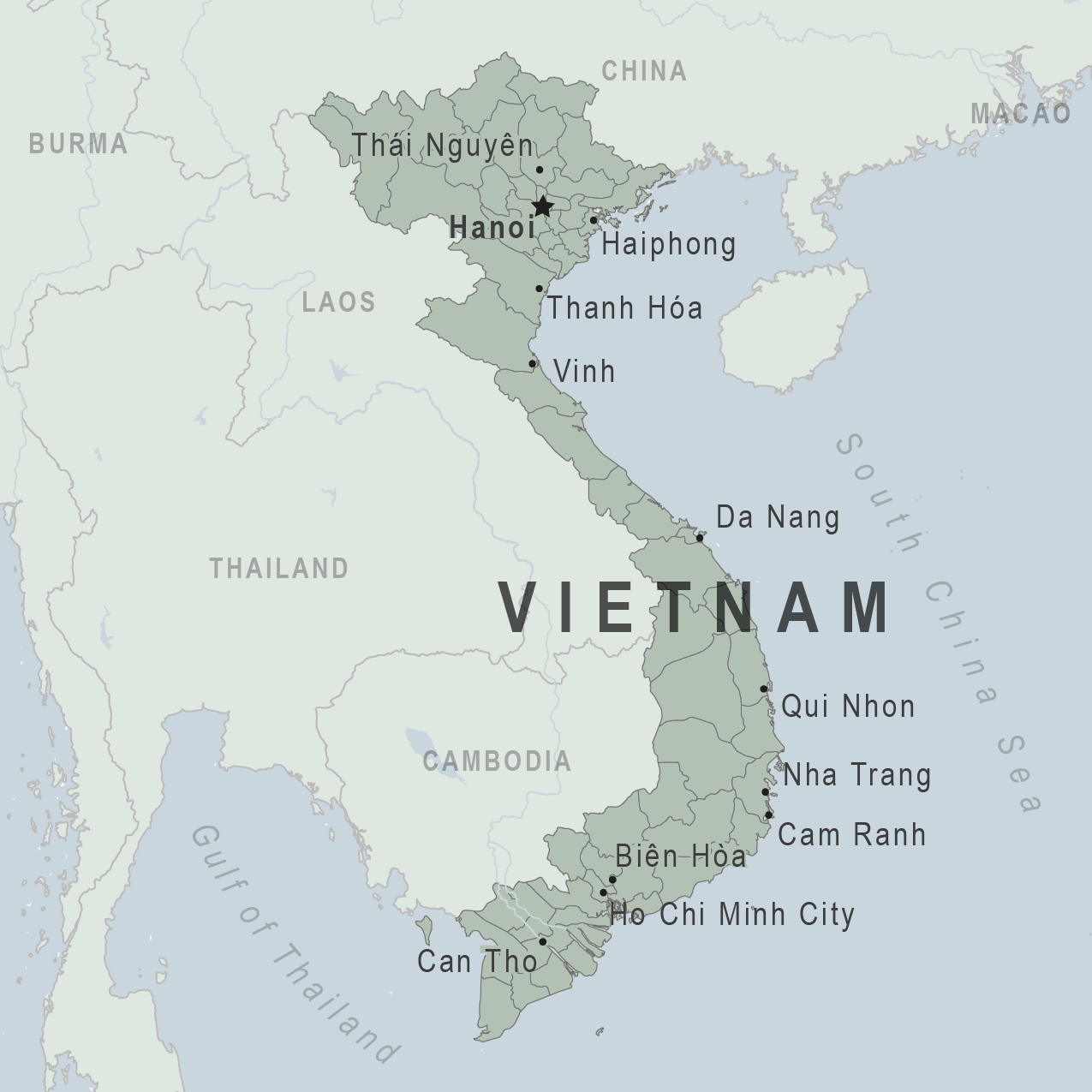
There are no notices currently in effect for Vietnam.
⇧ Top
Check the vaccines and medicines list and visit your doctor at least a month before your trip to get vaccines or medicines you may need. If you or your doctor need help finding a location that provides certain vaccines or medicines, visit the Find a Clinic page.
- Avoid contaminated water
Leptospirosis
How most people get sick (most common modes of transmission)
- Touching urine or other body fluids from an animal infected with leptospirosis
- Swimming or wading in urine-contaminated fresh water, or contact with urine-contaminated mud
- Drinking water or eating food contaminated with animal urine
- Avoid contaminated water and soil
- Avoid floodwater
Clinical Guidance
Schistosomiasis
- Wading, swimming, bathing, or washing in contaminated freshwater streams, rivers, ponds, lakes, or untreated pools.
Avoid bug bites
Chikungunya
- Mosquito bite
- Avoid Bug Bites
- Mosquito bite
- An infected pregnant woman can spread it to her unborn baby
Airborne & droplet
Avian/bird flu.
- Being around, touching, or working with infected poultry, such as visiting poultry farms or live-animal markets
- Avoid domestic and wild poultry
- Breathing in air or accidentally eating food contaminated with the urine, droppings, or saliva of infected rodents
- Bite from an infected rodent
- Less commonly, being around someone sick with hantavirus (only occurs with Andes virus)
- Avoid rodents and areas where they live
- Avoid sick people
Tuberculosis (TB)
- Breathe in TB bacteria that is in the air from an infected and contagious person coughing, speaking, or singing.
Learn actions you can take to stay healthy and safe on your trip. Vaccines cannot protect you from many diseases in Vietnam, so your behaviors are important.
Eat and drink safely
Food and water standards around the world vary based on the destination. Standards may also differ within a country and risk may change depending on activity type (e.g., hiking versus business trip). You can learn more about safe food and drink choices when traveling by accessing the resources below.
- Choose Safe Food and Drinks When Traveling
- Water Treatment Options When Hiking, Camping or Traveling
- Global Water, Sanitation and Hygiene (WASH)
- Avoid Contaminated Water During Travel
You can also visit the Department of State Country Information Pages for additional information about food and water safety.
Prevent bug bites
Bugs (like mosquitoes, ticks, and fleas) can spread a number of diseases in Vietnam. Many of these diseases cannot be prevented with a vaccine or medicine. You can reduce your risk by taking steps to prevent bug bites.
What can I do to prevent bug bites?
- Cover exposed skin by wearing long-sleeved shirts, long pants, and hats.
- Use an appropriate insect repellent (see below).
- Use permethrin-treated clothing and gear (such as boots, pants, socks, and tents). Do not use permethrin directly on skin.
- Stay and sleep in air-conditioned or screened rooms.
- Use a bed net if the area where you are sleeping is exposed to the outdoors.
What type of insect repellent should I use?
- FOR PROTECTION AGAINST TICKS AND MOSQUITOES: Use a repellent that contains 20% or more DEET for protection that lasts up to several hours.
- Picaridin (also known as KBR 3023, Bayrepel, and icaridin)
- Oil of lemon eucalyptus (OLE) or para-menthane-diol (PMD)
- 2-undecanone
- Always use insect repellent as directed.
What should I do if I am bitten by bugs?
- Avoid scratching bug bites, and apply hydrocortisone cream or calamine lotion to reduce the itching.
- Check your entire body for ticks after outdoor activity. Be sure to remove ticks properly.
What can I do to avoid bed bugs?
Although bed bugs do not carry disease, they are an annoyance. See our information page about avoiding bug bites for some easy tips to avoid them. For more information on bed bugs, see Bed Bugs .
For more detailed information on avoiding bug bites, see Avoid Bug Bites .
Some diseases in Vietnam—such as dengue, Zika, and filariasis—are spread by bugs and cannot be prevented with a vaccine. Follow the insect avoidance measures described above to prevent these and other illnesses.
Stay safe outdoors
If your travel plans in Vietnam include outdoor activities, take these steps to stay safe and healthy during your trip.
- Stay alert to changing weather conditions and adjust your plans if conditions become unsafe.
- Prepare for activities by wearing the right clothes and packing protective items, such as bug spray, sunscreen, and a basic first aid kit.
- Consider learning basic first aid and CPR before travel. Bring a travel health kit with items appropriate for your activities.
- If you are outside for many hours in heat, eat salty snacks and drink water to stay hydrated and replace salt lost through sweating.
- Protect yourself from UV radiation : use sunscreen with an SPF of at least 15, wear protective clothing, and seek shade during the hottest time of day (10 a.m.–4 p.m.).
- Be especially careful during summer months and at high elevation. Because sunlight reflects off snow, sand, and water, sun exposure may be increased during activities like skiing, swimming, and sailing.
- Very cold temperatures can be dangerous. Dress in layers and cover heads, hands, and feet properly if you are visiting a cold location.
Stay safe around water
- Swim only in designated swimming areas. Obey lifeguards and warning flags on beaches.
- Practice safe boating—follow all boating safety laws, do not drink alcohol if driving a boat, and always wear a life jacket.
- Do not dive into shallow water.
- Do not swim in freshwater in developing areas or where sanitation is poor.
- Avoid swallowing water when swimming. Untreated water can carry germs that make you sick.
- To prevent infections, wear shoes on beaches where there may be animal waste.
Leptospirosis, a bacterial infection that can be spread in fresh water, is found in Vietnam. Avoid swimming in fresh, unchlorinated water, such as lakes, ponds, or rivers.
Keep away from animals
Most animals avoid people, but they may attack if they feel threatened, are protecting their young or territory, or if they are injured or ill. Animal bites and scratches can lead to serious diseases such as rabies.
Follow these tips to protect yourself:
- Do not touch or feed any animals you do not know.
- Do not allow animals to lick open wounds, and do not get animal saliva in your eyes or mouth.
- Avoid rodents and their urine and feces.
- Traveling pets should be supervised closely and not allowed to come in contact with local animals.
- If you wake in a room with a bat, seek medical care immediately. Bat bites may be hard to see.
All animals can pose a threat, but be extra careful around dogs, bats, monkeys, sea animals such as jellyfish, and snakes. If you are bitten or scratched by an animal, immediately:
- Wash the wound with soap and clean water.
- Go to a doctor right away.
- Tell your doctor about your injury when you get back to the United States.
Consider buying medical evacuation insurance. Rabies is a deadly disease that must be treated quickly, and treatment may not be available in some countries.
Reduce your exposure to germs
Follow these tips to avoid getting sick or spreading illness to others while traveling:
- Wash your hands often, especially before eating.
- If soap and water aren’t available, clean hands with hand sanitizer (containing at least 60% alcohol).
- Don’t touch your eyes, nose, or mouth. If you need to touch your face, make sure your hands are clean.
- Cover your mouth and nose with a tissue or your sleeve (not your hands) when coughing or sneezing.
- Try to avoid contact with people who are sick.
- If you are sick, stay home or in your hotel room, unless you need medical care.
Avoid sharing body fluids
Diseases can be spread through body fluids, such as saliva, blood, vomit, and semen.
Protect yourself:
- Use latex condoms correctly.
- Do not inject drugs.
- Limit alcohol consumption. People take more risks when intoxicated.
- Do not share needles or any devices that can break the skin. That includes needles for tattoos, piercings, and acupuncture.
- If you receive medical or dental care, make sure the equipment is disinfected or sanitized.
Know how to get medical care while traveling
Plan for how you will get health care during your trip, should the need arise:
- Carry a list of local doctors and hospitals at your destination.
- Review your health insurance plan to determine what medical services it would cover during your trip. Consider purchasing travel health and medical evacuation insurance.
- Carry a card that identifies, in the local language, your blood type, chronic conditions or serious allergies, and the generic names of any medications you take.
- Some prescription drugs may be illegal in other countries. Call Vietnam’s embassy to verify that all of your prescription(s) are legal to bring with you.
- Bring all the medicines (including over-the-counter medicines) you think you might need during your trip, including extra in case of travel delays. Ask your doctor to help you get prescriptions filled early if you need to.
Many foreign hospitals and clinics are accredited by the Joint Commission International. A list of accredited facilities is available at their website ( www.jointcommissioninternational.org ).
In some countries, medicine (prescription and over-the-counter) may be substandard or counterfeit. Bring the medicines you will need from the United States to avoid having to buy them at your destination.
Malaria is a risk in some parts of Vietnam. If you are going to a risk area, fill your malaria prescription before you leave, and take enough with you for the entire length of your trip. Follow your doctor’s instructions for taking the pills; some need to be started before you leave.
Select safe transportation
Motor vehicle crashes are the #1 killer of healthy US citizens in foreign countries.
In many places cars, buses, large trucks, rickshaws, bikes, people on foot, and even animals share the same lanes of traffic, increasing the risk for crashes.
Be smart when you are traveling on foot.
- Use sidewalks and marked crosswalks.
- Pay attention to the traffic around you, especially in crowded areas.
- Remember, people on foot do not always have the right of way in other countries.
Riding/Driving
Choose a safe vehicle.
- Choose official taxis or public transportation, such as trains and buses.
- Ride only in cars that have seatbelts.
- Avoid overcrowded, overloaded, top-heavy buses and minivans.
- Avoid riding on motorcycles or motorbikes, especially motorbike taxis. (Many crashes are caused by inexperienced motorbike drivers.)
- Choose newer vehicles—they may have more safety features, such as airbags, and be more reliable.
- Choose larger vehicles, which may provide more protection in crashes.
Think about the driver.
- Do not drive after drinking alcohol or ride with someone who has been drinking.
- Consider hiring a licensed, trained driver familiar with the area.
- Arrange payment before departing.
Follow basic safety tips.
- Wear a seatbelt at all times.
- Sit in the back seat of cars and taxis.
- When on motorbikes or bicycles, always wear a helmet. (Bring a helmet from home, if needed.)
- Avoid driving at night; street lighting in certain parts of Vietnam may be poor.
- Do not use a cell phone or text while driving (illegal in many countries).
- Travel during daylight hours only, especially in rural areas.
- If you choose to drive a vehicle in Vietnam, learn the local traffic laws and have the proper paperwork.
- Get any driving permits and insurance you may need. Get an International Driving Permit (IDP). Carry the IDP and a US-issued driver's license at all times.
- Check with your auto insurance policy's international coverage, and get more coverage if needed. Make sure you have liability insurance.
- Avoid using local, unscheduled aircraft.
- If possible, fly on larger planes (more than 30 seats); larger airplanes are more likely to have regular safety inspections.
- Try to schedule flights during daylight hours and in good weather.
Medical Evacuation Insurance
If you are seriously injured, emergency care may not be available or may not meet US standards. Trauma care centers are uncommon outside urban areas. Having medical evacuation insurance can be helpful for these reasons.
Helpful Resources
Road Safety Overseas (Information from the US Department of State): Includes tips on driving in other countries, International Driving Permits, auto insurance, and other resources.
The Association for International Road Travel has country-specific Road Travel Reports available for most countries for a minimal fee.
For information traffic safety and road conditions in Vietnam, see Travel and Transportation on US Department of State's country-specific information for Vietnam .
Maintain personal security
Use the same common sense traveling overseas that you would at home, and always stay alert and aware of your surroundings.
Before you leave
- Research your destination(s), including local laws, customs, and culture.
- Monitor travel advisories and alerts and read travel tips from the US Department of State.
- Enroll in the Smart Traveler Enrollment Program (STEP) .
- Leave a copy of your itinerary, contact information, credit cards, and passport with someone at home.
- Pack as light as possible, and leave at home any item you could not replace.
While at your destination(s)
- Carry contact information for the nearest US embassy or consulate .
- Carry a photocopy of your passport and entry stamp; leave the actual passport securely in your hotel.
- Follow all local laws and social customs.
- Do not wear expensive clothing or jewelry.
- Always keep hotel doors locked, and store valuables in secure areas.
- If possible, choose hotel rooms between the 2nd and 6th floors.
To call for emergency services while in Vietnam, dial 115 for an ambulance, 114 for the fire department, and 113 for the police. Write these numbers down to carry with you on your trip.
Learn as much as you can about Vietnam before you travel there. A good place to start is the country-specific information on Vietnam from the US Department of State
Healthy Travel Packing List
Use the Healthy Travel Packing List for Vietnam for a list of health-related items to consider packing for your trip. Talk to your doctor about which items are most important for you.
Why does CDC recommend packing these health-related items?
It’s best to be prepared to prevent and treat common illnesses and injuries. Some supplies and medicines may be difficult to find at your destination, may have different names, or may have different ingredients than what you normally use.
If you are not feeling well after your trip, you may need to see a doctor. If you need help finding a travel medicine specialist, see Find a Clinic . Be sure to tell your doctor about your travel, including where you went and what you did on your trip. Also tell your doctor if you were bitten or scratched by an animal while traveling.
If your doctor prescribed antimalarial medicine for your trip, keep taking the rest of your pills after you return home. If you stop taking your medicine too soon, you could still get sick.
Malaria is always a serious disease and may be a deadly illness. If you become ill with a fever either while traveling in a malaria-risk area or after you return home (for up to 1 year), you should seek immediate medical attention and should tell the doctor about your travel history.
For more information on what to do if you are sick after your trip, see Getting Sick after Travel .
Map Disclaimer - The boundaries and names shown and the designations used on maps do not imply the expression of any opinion whatsoever on the part of the Centers for Disease Control and Prevention concerning the legal status of any country, territory, city or area or of its authorities, or concerning the delimitation of its frontiers or boundaries. Approximate border lines for which there may not yet be full agreement are generally marked.
Other Destinations
If you need help finding travel information:
Message & data rates may apply. CDC Privacy Policy
File Formats Help:
- Adobe PDF file
- Microsoft PowerPoint file
- Microsoft Word file
- Microsoft Excel file
- Audio/Video file
- Apple Quicktime file
- RealPlayer file
- Zip Archive file
Cookies on GOV.UK
We use some essential cookies to make this website work.
We’d like to set additional cookies to understand how you use GOV.UK, remember your settings and improve government services.
We also use cookies set by other sites to help us deliver content from their services.
You have accepted additional cookies. You can change your cookie settings at any time.
You have rejected additional cookies. You can change your cookie settings at any time.
Warnings and insurance
Typhoon yagi.
Typhoon Yagi is expected to make its way through Northern Vietnam between 6-8 September with the risk of high winds, heavy rain, potential flooding, and landslides.
Monitor local news reports and, if relevant, stay in touch with your tour operator and/or airline. Follow the advice of the local authorities and your hotel, including any evacuation orders. The local authorities have ordered northern Vietnamese airports to suspend services on Saturday 7 September as follows: Van Don airport in northern Quang Ninh Province from 4 a.m. to 4 p.m.; Cat Bi airport of Hai Phong from 5 a.m. to 4 p.m.; Hanoi’s Noi Bai International Airport from 10 a.m. to 7 p.m.; and Tho Xuan airport of central Thanh Hoa Province from noon to 10 p.m. Authorities in Hai Phong, Quang Ninh, Thai Binh, Nam Dinh, Ninh Binh and Nghe An are expected to enforce sea bans from Friday 6 September.
See more in Extreme weather and natural disasters
Before you travel
No travel can be guaranteed safe. Read all the advice in this guide. You may also find it helpful to:
- see general advice for women travellers
- read our guide on disability and travel abroad
- see general advice for LGBT+ travellers
- read about safety for solo and independent travel
- see advice on volunteering and adventure travel abroad
Travel insurance
If you choose to travel, research your destinations and get appropriate travel insurance . Insurance should cover your itinerary, planned activities and expenses in an emergency.
About FCDO travel advice
The Foreign, Commonwealth & Development Office ( FCDO ) provides advice about risks of travel to help you make informed decisions. Find out more about FCDO travel advice .
Follow and contact FCDO travel on Twitter , Facebook and Instagram . You can also sign up to get email notifications when this advice is updated.
Related content
Is this page useful.
- Yes this page is useful
- No this page is not useful
Help us improve GOV.UK
Don’t include personal or financial information like your National Insurance number or credit card details.
To help us improve GOV.UK, we’d like to know more about your visit today. Please fill in this survey (opens in a new tab) .
We’re sorry, this site is currently experiencing technical difficulties. Please try again in a few moments. Exception: request blocked

- Countries & Regions
- International Organisations (IOs)
- Climate Change
- Counter Terrorism
- Disarmament
- Cybersecurity
- International Peacekeeping
- Singapore's Voluntary National Review
- Small States
- Sustainable Development
- Pedra Branca
- Singapore Universal Periodic Review
- Water Agreements
- Find A Singapore Overseas Mission
- Foreign Representatives To Singapore
- COVID-19 Information
- Travel Tips
- Visa Information
- I Need Help Overseas
- Passport Matters
- Legalisation of Documents
- Travel Advisories and Notices
- Useful links
- Press Statements, Transcripts & Photos
- Announcements and Highlights
- Experience Singapore
- Foreign Service Officer (Functional and Corporate)
- Foreign Service Officer (Political and Economic)
- Foreign Service Administration Specialist
- Job Opportunities
- Pre-University
- Undergraduate
- Foreign Service Scholarships
- Recruitment
- Scholarship
- Reach.gov.sg
Expand All | Collapse All
Ministry of Health (MOH) Public Health Advisory Travellers should refer to ICA website ( www.ica.gov.sg ) for the latest information on travelling to/from or transiting through Singapore. For the latest updates on Singapore's COVID-19 situation, please refer to the MOH website at www.moh.gov.sg/covid-19
Entry and Exit
Travel to Vietnam
Singaporeans who wish to enter Vietnam should refer to the website of the Vietnam Embassy in Singapore for information on entry requirements. Generally, Singapore Passport Holders do not require a visa to enter Vietnam and can remain up to 30 days per entry. Please note that the approval for entry into Vietnam, is ultimately at the assessment and discretion of the Vietnam Immigration authorities.
In case of emergencies, Singaporeans are strongly encouraged to e-register with MFA at https://eregister.mfa.gov.sg and, depending on your needs, consider purchasing comprehensive travel insurance beyond the Vietnamese government's requirements to deal with contingencies and avoid having to pay hefty medical expenses and related costs.
Useful Resources
For the latest information on Vietnam’s travel policies and medical-related advisories, please visit these websites:
Vietnam Ministry of Health ( https://ncov.moh.gov.vn/ )
Vietnam Embassy in Singapore ( https://vnembassy-singapore.mofa.gov.vn )
Vietnam Ministry of Foreign Affairs ( www.mofa.gov.vn )
Singaporeans in Vietnam are strongly advised to follow local developments closely. Singaporeans are encouraged to e-register with MFA at https://eregister.mfa.gov.sg , and follow the Singapore Embassy in Hanoi and Consulate-General in Ho Chi Minh’s Facebook Page ( www.facebook.com/SingaporeEmbassyHanoi ) to receive the latest consular ‑ related news and updates.
For urgent consular assistance, please contact the following:
Embassy of the Republic of Singapore in Vietnam
Address: No. 41 & 43, Tran Phu Street, Ba Dinh District, Hanoi, Vietnam
Tel: +84-24-3848-9168, 3848-9170
Emergency Tel (after hours): +84-904-696-589
Email: [email protected]
URL: https://www.mfa.gov.sg/Hanoi
Singapore Consulate-General in Ho Chi Minh City
Address: The Saigon Centre Tower 2, #11-05, 67 Le Loi Boulevard, District 1, Ho Chi Minh City, Vietnam
Tel: +84-28-3822-5174
Emergency Tel: +84-903-113-500
Email: [email protected]
URL: https://www.mfa.gov.sg/HoChiMinhCity
Ministry of Foreign Affairs Duty Office (24-hour)
Tanglin, Singapore 248163
Tel: +65 6379 8800; +65 6379 8855
Email: [email protected]
Embassy of Vietnam in Singapore
Address: 10 Leedon Park
Singapore 267887
Tel: +65 6467 2207
Email: [email protected]
Safety and Security
Immigration: When you enter or depart the country, always check before leaving the Immigration Checkpoint to ensure that your passport is stamped with the correct dates. The allowed duration of stay will be indicated on the entry stamp. Be mindful of the entry and exit dates to ensure you are not breaching the host country’s immigration laws. Do not pass immigration booths that are unattended.
Sanitation and Hygiene: Tap water is not safe for drinking. Avoid drinking un-boiled water and taking ice from unknown sources. Always use purified or mineral water for drinking. It is recommended that travellers have medications such as charcoal and diarrhoea pills on stand-by. When unsure, stick to fully cooked food items. It is advisable to take food and drinks (and ice) from establishments which practice good food hygiene. It is highly recommended that the necessary vaccinations are taken prior to coming to Vietnam. It is advisable to immunise against cholera, hepatitis (both A & B), typhoid, tetanus, polio, encephalitis and rabies.
Safety: There have been reported incidences of snatch-thefts and pickpockets in Vietnam, especially in crowded areas, supermarkets and on public buses. Take necessary precautions such as to avoid carrying too much cash, and using your hand phone while walking or travelling on public transport such as motorcycle taxis. If you are a victim of a crime and not injured, do try to remember the area where the crime took place and request for assistance from a native speaker (eg hotel staff or friend) to accompany you to the police station in charge of the incident area to make a police report within 24 hours. If you lose your passport as a result, a police report has to be made at the nearest police station to where the loss happened or is suspected to have happened before we can issue you with a temporary Document of Identity for travel back to Singapore.
Transport: Typically, foreign travellers use taxis. For taxis, the more reputable companies are ABC, Be, Mai Linh and CP in Hanoi, as well as Vinasun and Mai Linh in HCMC. If possible, you may wish to seek your hotel’s assistance to flag a taxi from a reputable company on your behalf. Do remember the four digit alphanumeric number which is displayed on a disc at the front and rear of the taxis (not the number plates) so that you may follow-up with the taxi companies, if there is a need to do so. You should avoid going with anyone who approaches you asking if you need a ride when you are out. Travellers arriving at the airports should proceed to the taxi queue directly to take a taxi, and insist that the driver switch on the meter before moving off. Avoid going along with “taxi agents” standing outside the arrival halls who will approach unsuspecting tourists to bring them to illegal or fake taxis waiting at the carparks or outside of the taxi stand. Grab and GoJek are also popular in Vietnam. However, when calling a Grab/GoJek ride from the airport, be sure to verify the vehicle number against that indicated on the app and avoid going with anyone who approaches you claiming to be your driver.
Most foreign travellers avoid using the local buses due to the language barrier. Another common mode of transport in Vietnam are the motorcycle taxis (xe-om/Gojek ride/Grab bike), but the riders are usually less proficient in English. Always wear a helmet when riding on such motorcycle taxis as it is illegal to ride pillion without a helmet in Vietnam. Also avoid wearing dangling jewellery and keep your bags close to you. Take care of your belongings when travelling on public transport.
The traffic situation in Vietnam can be a little daunting to foreign travellers as there are many motorcycles and cars weaving through the roads. Do exercise care when crossing the roads and take precaution against unexpected traffic (sometimes from the wrong direction). Always signal your intention to cross the road early and avoid making sudden, unexpected movements so that oncoming motorists are not caught off-guard.
Hanoi-Specific Advice: The level of pollution in Hanoi can be high, largely due to vehicle emissions. The dust index (PM10) in Hanoi can reach 4 times higher than the permitted level. This may result in breathing difficulties especially during the hotter summer months when temperatures can reach 48oC. Ho Chi Minh City and the southern provinces are susceptible to tropical storms and floods. Travellers are encouraged to keep informed of the conditions through local media.
Customs regulations and currency control: Be familiar with the local customs regulations. There are stringent requirements on the entry of food and agricultural products. Travellers are required to declare items which come under the agricultural quarantine restrictions as stated on the customs forms at the point of entry. Failure to do so could result in the imposition of severe fines. Travellers who import/export currencies exceeding US$5,000/- or equivalent are required to declare on arrival and departure.
Illegal drugs and narcotics: Penalties for possession, distribution or manufacture of drugs can be severe. Possession of even a small amount of drugs can attract a lengthy prison sentence or even the death sentence. Do not convey or transport any parcel, especially across a border, when asked by a stranger. Should such parcels contain illegal drugs, you risk being found guilty of possession, smuggling or trafficking in drugs. You should also never leave your belongings unattended or under the “care” of any stranger.
Other prohibited items: Firearms and explosive materials, pornographic materials (books, video tapes, DVDs etc), drugs, fire-crackers, are prohibited from being brought into Vietnam. It is also against the law to export antiques out of Vietnam without the relevant permit/approval from the Ministry of Culture.
Registration of residence: It is mandatory for all foreigners to register their stay with the local police in Vietnam. If you are staying in a hotel, your hotel would usually assist with the registration. To facilitate registration, you might wish to provide your hotel with a scanned copy of your passport and confirm with them if they had registered your stay with the local police. If you are planning to stay with your relatives, friends or at a rented apartment, you are also required to you register your stay with the local police, either through your relatives/friends or the landlord. There are no local rules which require the lodging establishments (guest house or hotels) to hold on to your passports during your stay with them.
Driving Licence: Singapore and/or International driving licences have to be converted for use in Vietnam.
Photo-taking: Do not take photographs of military installations without prior approval from the relevant authorities.
Additional Information
Singaporeans travelling to or living in Vietnam may also wish to follow the Singapore Embassy in Hanoi and Consulate-General in Ho Chi Minh City’s Facebook page ( https://www.facebook.com/SingaporeEmbassyHanoi/ ) for timely travel alerts and updates.
General Travel Advice
Overseas Travel – Be Informed & Be Safe [Updated on 5 February 2024]
Singaporeans planning overseas travel are reminded to take the necessary precautions, including being prepared to deal with accidents, natural disasters or terrorist attacks. Singaporeans are also reminded to be familiar with your destination’s local laws, customs, and COVID-19 regulations.
Demonstrations do occur in major cities across the world. Such demonstrations can sometimes escalate into violence. It is important for Singaporeans to keep abreast of local news, avoid any protests or demonstrations and heed the advice of the local authorities.
When participating in outdoor leisure activities overseas, Singaporeans should be mindful that certain sporting activities, especially in open seas, may carry risks. Besides ensuring that one has the physical competencies and appropriate condition to undertake the activity, every effort should be made to ascertain if the trip organiser or guide is reliable and competent, and that appropriate safety and contingency plans are in place. When in doubt, Singaporeans should consult the relevant professional bodies or sporting associations for specific advice.
For those planning to travel, here are some tips:
Before travelling
- Familiarise yourself with our network of overseas missions.
- Purchase comprehensive travel insurance and be familiar with the terms and coverage.
- Equip yourself with research about your destination’s entry requirements, current situation, local laws and customs.
- eRegister with us on our website ( www.mfa.gov.sg ) so that we may reach out to you during an emergency.
While travelling
- Always take care of your personal safety, remain vigilant and monitor local weather news, advisories, and security developments.
- Exercise caution around large gatherings and avoid locations known for demonstrations or disturbances.
- Be prepared for possible delays and last-minute changes in travel plans especially during unforeseen events such as natural disasters, social unrest or terror attacks.
- Stay connected with your friends and family. Inform them of your whereabouts and provide them with your overseas contact details.
- In the event that you require consular assistance, please contact the nearest Singapore Overseas Mission or call the Ministry of Foreign Affairs Duty Office at +65 6379 8800/+65 6379 8855.
Advisory: Email Scams
There have been reports of individuals receiving scam emails/messages purportedly sent from friends in distress overseas. These emails/messages typically originate from an email address/social media known to the receiver bearing claims of the sender getting into trouble overseas and urgently requesting financial assistance. The sender would also claim to have approached a Singapore Embassy/Consulate and the local Police for help to no avail.
MFA takes the safety of all Singaporeans very seriously. Singaporeans in distress approaching our Overseas Missions for assistance will be rendered with all necessary consular assistance. If you receive such emails/messages from purported friends seeking funds transfers, we strongly advise you to call them first to verify the authenticity of the emails/messages before responding to their request. It is also not advisable to give out any personal information such as NRIC/passport numbers, address, telephone number, etc. Any form of reply, even one of non-interest, could result in more unsolicited emails. Members of the public who suspect that they have fallen prey to such scams should report the matter to the Police immediately. Should Singaporeans abroad require consular assistance, they can contact the nearest Singapore Overseas Mission or call the Ministry of Foreign Affairs 24-hr Duty Office at +65 6379 8800/+65 6379 8855.
The Ministry of Foreign Affairs is a ministry of the Government of Singapore responsible for conducting and managing diplomatic relations between Singapore and other countries and regions.
Travel Page

For your holidays in Vietnam and abroad
Who wouldn’t want to take in the beautiful green hills or wind down on the serene beaches? You get this and much more when visiting Vietnam. It is one of the most popular travel destinations with a rich history, breathtaking scenery, and vibrant culture. The country's beauty is among the significant reasons people from all over the world visit Vietnam. The friendly locals and the distinctive culture are also the reasons traveling to this country is exciting.
Staples of the Country
The stunning, unmatched nature of Vietnam is what attracts many travelers to this country. The astonishing Mekong Delta rover and the lush rice fields spread in the north are some must-see experiences. Another great thing about Vietnam is that it is filled with ancient traditions and history. You can't miss exploring the many world heritage sites in the country, including Cham Islands, Hoi An Ancient Street, Phon Nha Ke Bang Caves, and Halong Bay. The beautiful beaches are a wonderful place to relax and are surprisingly less crowded compared to the beaches in other countries. Trying authentic cuisine in this country is also something you won't want to miss. It is not just tasty but also healthy whether you eat at a fancy restaurant or from a food street stall.
Does Vietnam Require Travel Insurance?
All visitors entering Vietnam are required to have travel insurance with a minimum of $10,000. It is wise to purchase a complete travel insurance policy because of the unpredictable nature of traveling internationally. It is best to select the travel insurance plan that meets your unique requirements and concerns, including trip cancellation, illness, baggage and personal effects, flight disruptions, and delays.
Vietnam FAQ
What type of vaccinations are required to visit.
CDC recommends travelers visiting Vietnam must have the following vaccinations:
- Chickenpox (Varicella)
- Measles-Mumps-Rubella (MMR)
- Flu (influenza)
- Diphtheria-Tetanus-Pertussis
- Japanese Encephalitis
- Hepatitis A
- While COVID-19 vaccination isn’t required, it is highly recommended if you are traveling to different countries.
Does Vietnam require International Medical Coverage?
All travelers are required to have travel insurance that includes emergency medical coverage worth a minimum of $10,000.
Where is the U.S. Embassy in Vietnam?
The U.S. Embassy is in Hanoi, Vietnam. You can head to the embassy or contact them via phone or website.
What is the best time of year to visit Vietnam in terms of weather, crowds, and cost?
The best time to visit Vietnam to enjoy pleasant weather is between November and April. July to August is usually the peak season, and the cost is high for everything. You will also find larger crowds during the peak season.
What is the local currency of Vietnam and its exchange rate for USD?
The local currency of Vietnam is the Vietnamese Dong. You can get over 23,524 Dong for only 1 USD.
Are credit cards widely accepted in Vietnam? If yes, which ones?
Axa already looks after millions of people around the world.
With our travel insurance we can take great care of you too

IMAGES
VIDEO
COMMENTS
Debit or credit card for payment. Step 2: Click this link or access https://immigration.gov.vn/ and go to 'E-visa Issuance' then click on the link for 'Outside Vietnam foreigners'. Step 3: Upload your .jpg images (passport data page and passport photo) and fill out the required fields on the form completely. Submit your form.
See our Vietnam evisa tips here. Foreign travelers are not required to take a pre-departure Covid-19 test or show proof of vaccination prior to arrival. The health declaration form requirement has been removed. Travel insurance that covers Covid-19 treatment with a minimum coverage of $10,000 has been required.
Previously those entering Vietnam were required to secure insurance with a minimum of $10,000 liability to assist in the event of any COVID-19 treatment. Despite the removal of mandatory coverage, we continue to recommend that travelers purchase travel insurance for Vietnam trips. International medical coverage may help visitors to the country ...
- A test is required if an international visitor shows COVID-19 symptoms. If the test result is positive, he/she must comply with the Ministry of Health's guidance. - The rule that international arrivals by air have to undergo another test when entering Vietnam, as well as quarantine requirements, is no longer in place.
Vietnam Travel Insurance Requirements. Effective May 15, 2022, Vietnam lifted all Covid-19 travel requirements, including mandatory travel insurance. With that said, these entry rules are subject to change at any time, and all travelers heading to Vietnam should confirm the latest entry requirements prior to departing for their trip.
The Ministry of Health's most recent guidance on COVID-19 prevention and control allows travelers to enter Vietnam without being isolated, and exempts children under 2 years of age from arrival testing. The Ministry of Health issued Dispatch No. 1265/BYT-DP on COVID-19 prevention and control measures for travelers to Viet Nam. The new Dispatch has been communicated to all other Ministries ...
- A test is required if an international visitor shows COVID-19 symptoms. If the test result is positive, they must comply with the Ministry of Health's guidance. The rule that international arrivals by air have to undergo another test when entering Việt Nam and quarantine requirements are no longer in place.
Health Alert - U.S. Embassy and U.S. Consulate General Ho Chi Minh City - COVID-19 Update (May 7, 2021) Locat. Due to heightened risk of COVID-19 in Vietnam, the Vietnamese Government is increasing restrictions on movement and calling for increased vigilance. Starting May 5, the Government of Vietnam instituted a 21-day quarantine period.
Here's what you need to prepare (most updated from March 15, 2022). Mục lục Ẩn. 1 Secure a valid visa/e-visa, if needed. 2 Get tested for COVID-19 before departure. 3 Check requirements of your stopover countries. 4 Get travel insurance that covers COVID-19. 5 Make a health declaration.
New Covid-19 tourism policies in Vietnam
As of 2022, Vietnam lifted the requirement for visitors to have travel medical insurance, such as the Vietnam Pass, which was previously implemented due to the COVID-19 pandemic. However, it is highly recommended to purchase travel insurance for your trip to Vietnam as it can protect you from unforeseen medical and travel expenses.
FCDO travel advice for Vietnam. Includes safety and security, insurance, entry requirements and legal differences. ... There are no COVID-19 testing or vaccination requirements for travellers ...
In general, travel insurance costs about 3 - 10% of your total prepaid and non-refundable trip expenses. The cost of travel insurance depends on two factors for AXA Travel Protection plans: Total Trip cost: The total non-prepaid and non-refundable costs you have already paid for your upcoming trip. This includes prepaid excursions, plane ...
The PC-COVID application (Photo: VNA) * Entry procedures: - All international arrivals have to make health declarations at tokhaiyte.vn prior to leaving. - Installing the PC-COVID application ...
Reissued with obsolete COVID-19 page links removed. Exercise normal precautions in Vietnam. Read the country information page for additional information on travel to Vietnam. If you decide to travel to Vietnam: Enroll in the Smart Traveler Enrollment Program (STEP) to receive Alerts and make it easier to locate you in an emergency.
Travel during daylight hours only, especially in rural areas. If you choose to drive a vehicle in Vietnam, learn the local traffic laws and have the proper paperwork. Get any driving permits and insurance you may need. Get an International Driving Permit (IDP). Carry the IDP and a US-issued driver's license at all times.
3.3. Health care insurance. Travellers must have medical or travel insurance that covers Covid-19 treatment with a minimum liability equivalent to $10,000. 3.4. Health monitoring and preventive measures against COVID-19 - Within 10 days from the date of entry: travellers must self-monitor health.
Trip insurance for Vietnam is a specialized form of travel insurance that safeguards your prepaid and nonrefundable travel costs. This type of coverage addresses various aspects of your trip, including flights, accommodations, activities, and tours. If unforeseen circumstances lead to a trip cancellation or interruption, this insurance helps ...
FCDO travel advice for Vietnam. Includes safety and security, insurance, entry requirements and legal differences.
A basic plan for a one-week trip to Vietnam for a single person can cost between $30 and $60, while comprehensive coverage can cost up to $100 or more. It all depends on several important factors, such as your age, the duration of your trip, your coverage level, the provider, and the type of policy you pick.
Effective May 15, 2022, the Vietnamese Government no longer requires a negative COVID-19 test prior to entry into Vietnam. Prior to travel into Vietnam, the U.S. Embassy in Hanoi and U.S. Consulate General in Ho Chi Minh City recommend all U.S. citizens check with airlines to confirm airline-specific policies on testing for flying or for ...
In case of emergencies, Singaporeans are strongly encouraged to e-register with MFA at https://eregister.mfa.gov.sg and, depending on your needs, consider purchasing comprehensive travel insurance beyond the Vietnamese government's requirements to deal with contingencies and avoid having to pay hefty medical expenses and related costs.
All visitors entering Vietnam are required to have travel insurance with a minimum of $10,000. It is wise to purchase a complete travel insurance policy because of the unpredictable nature of traveling internationally. It is best to select the travel insurance plan that meets your unique requirements and concerns, including trip cancellation ...